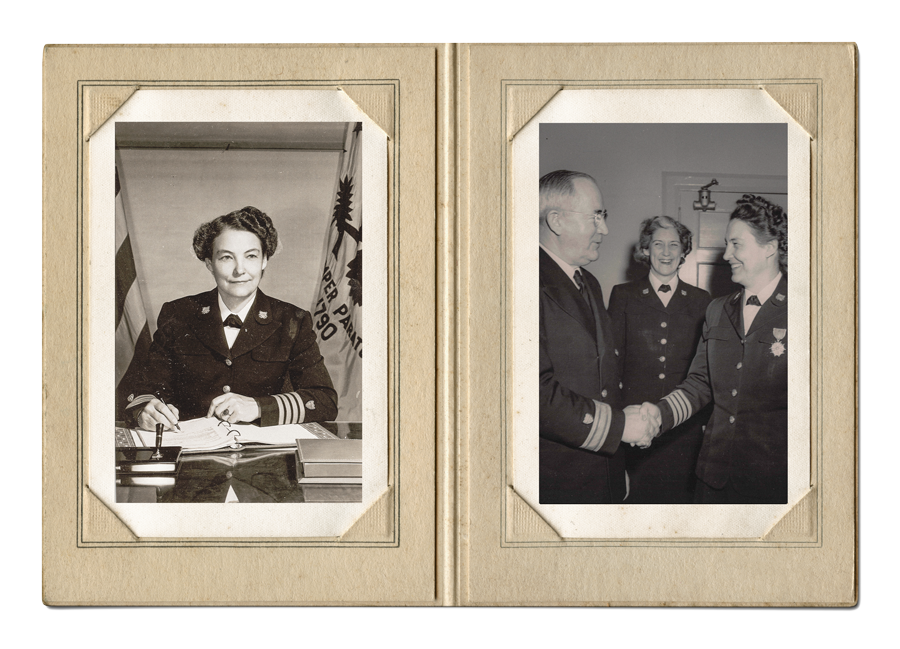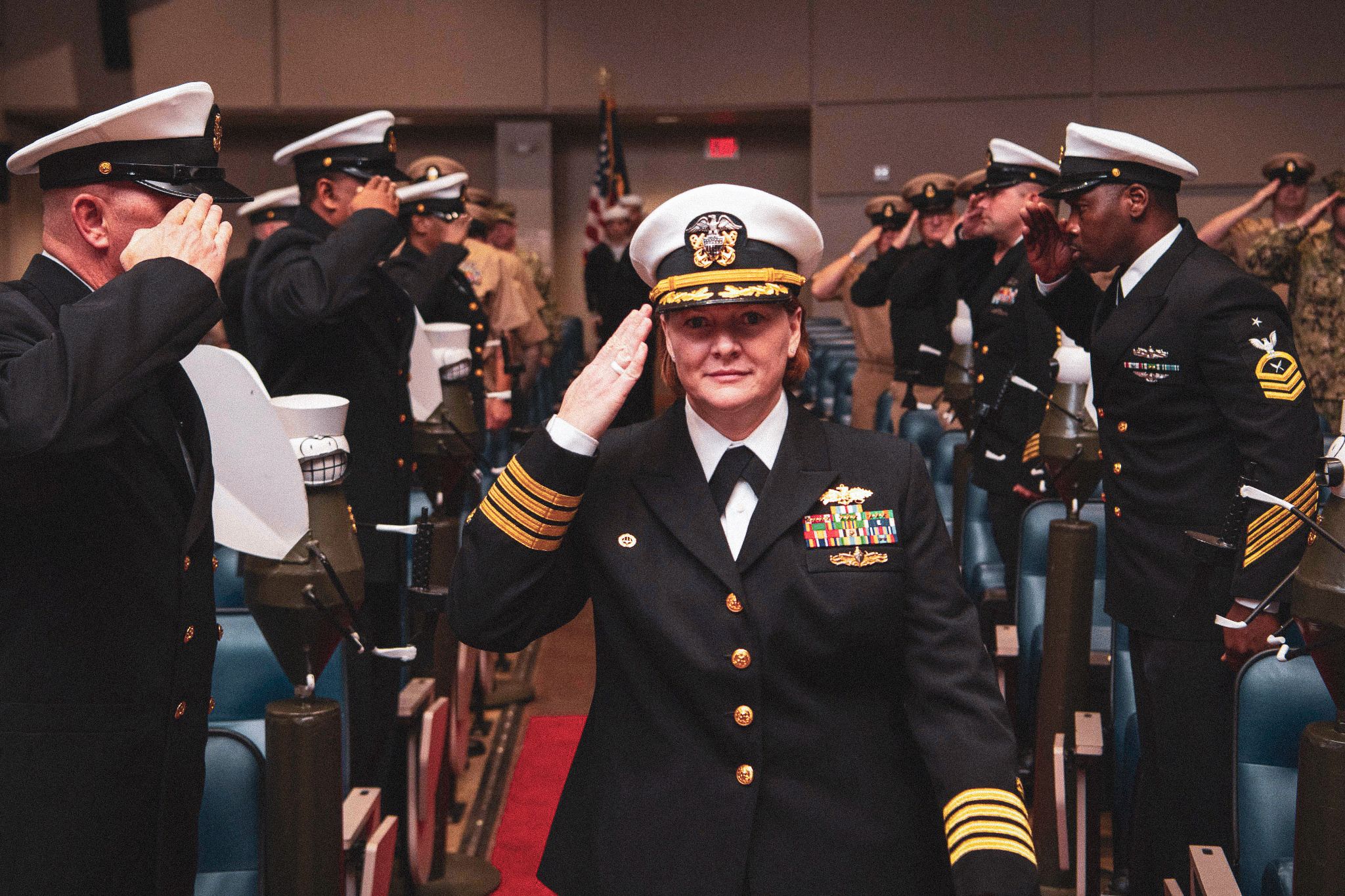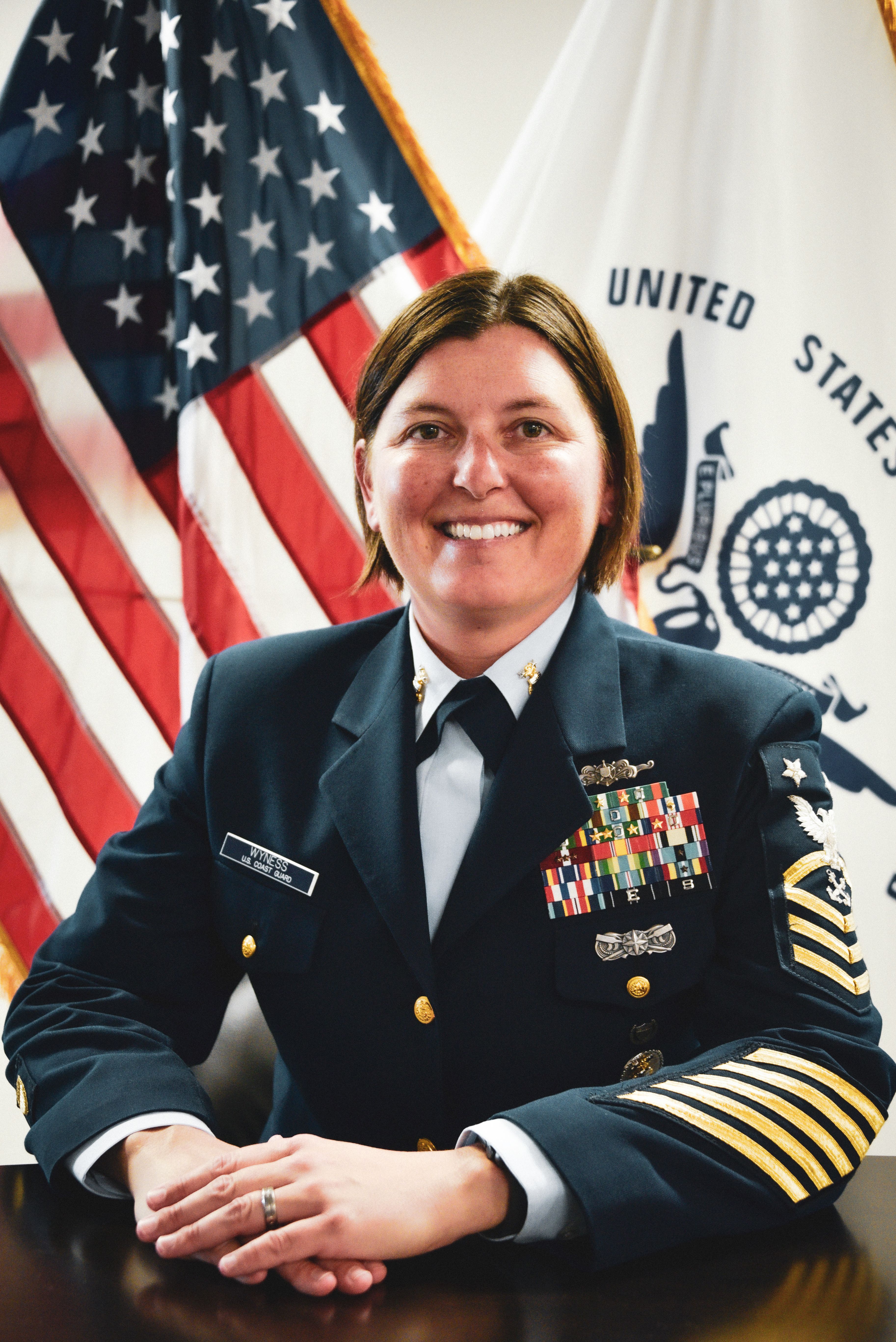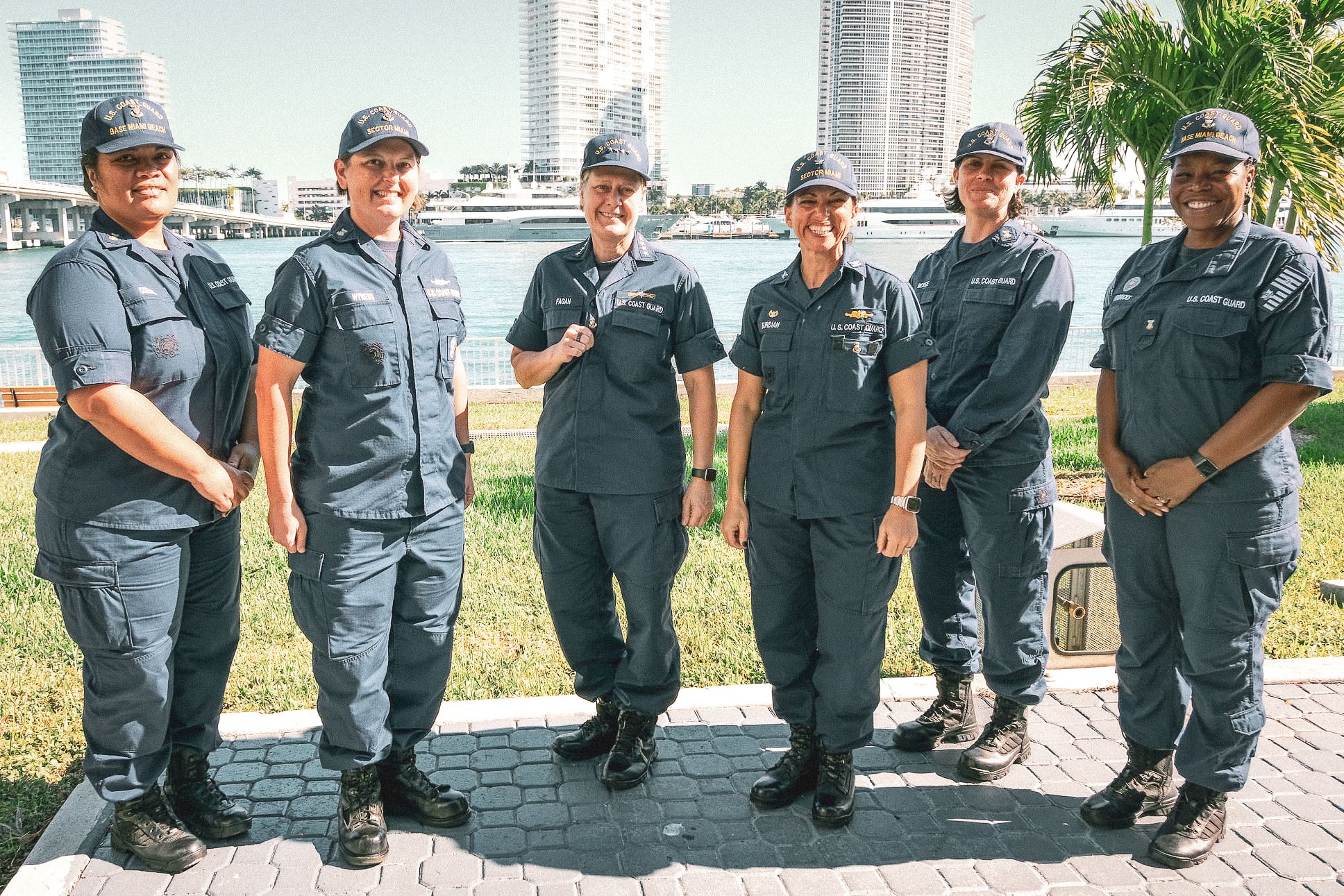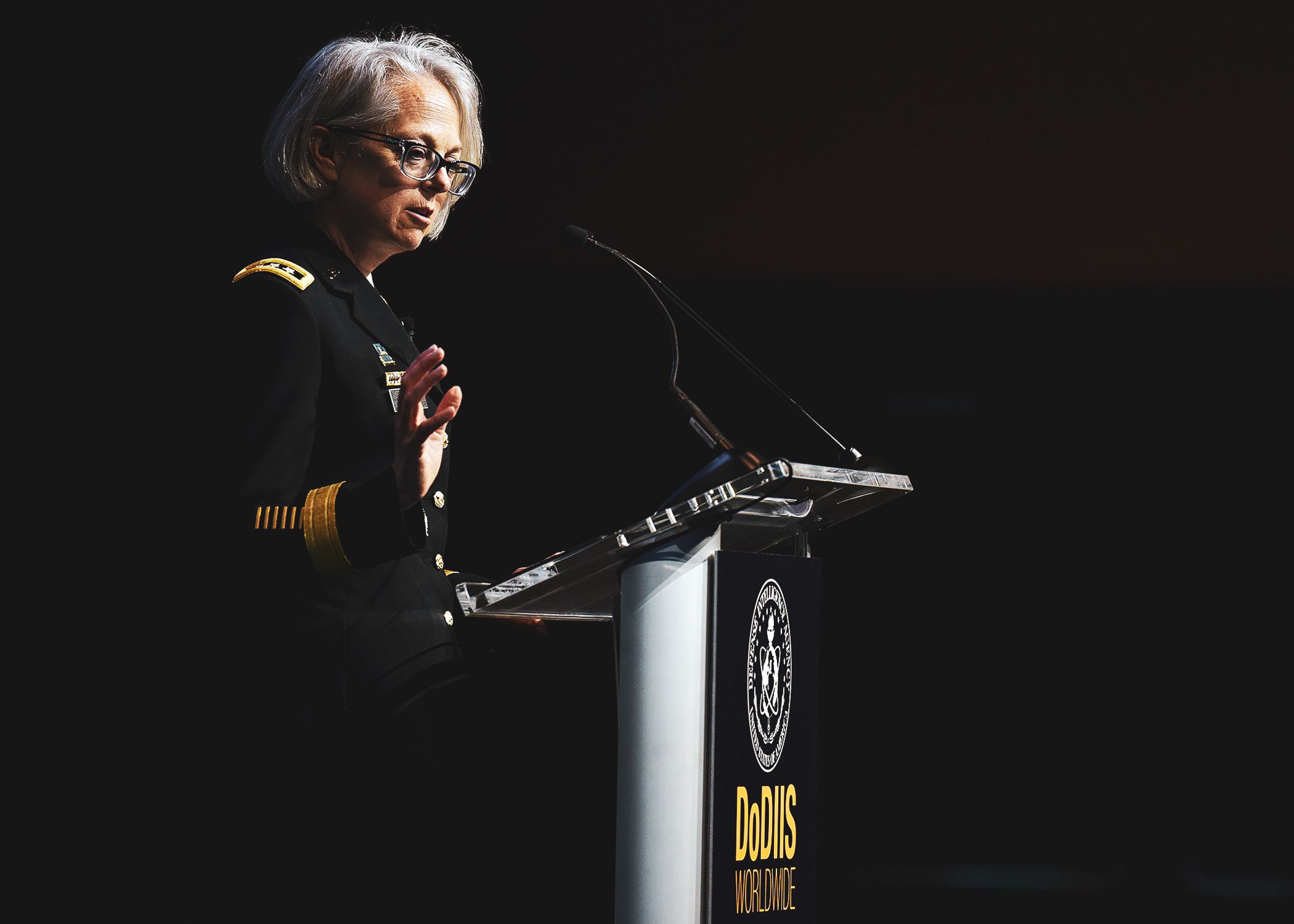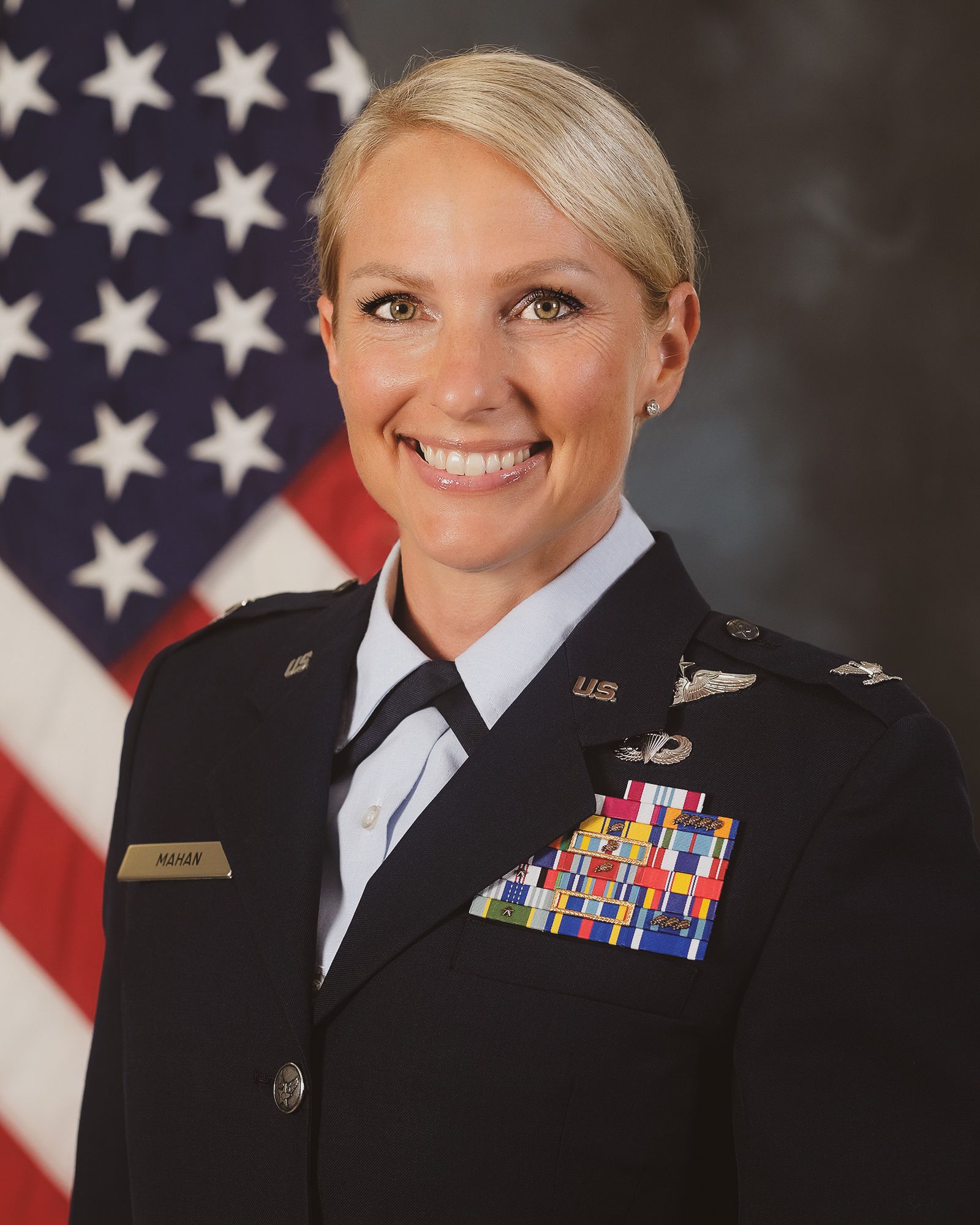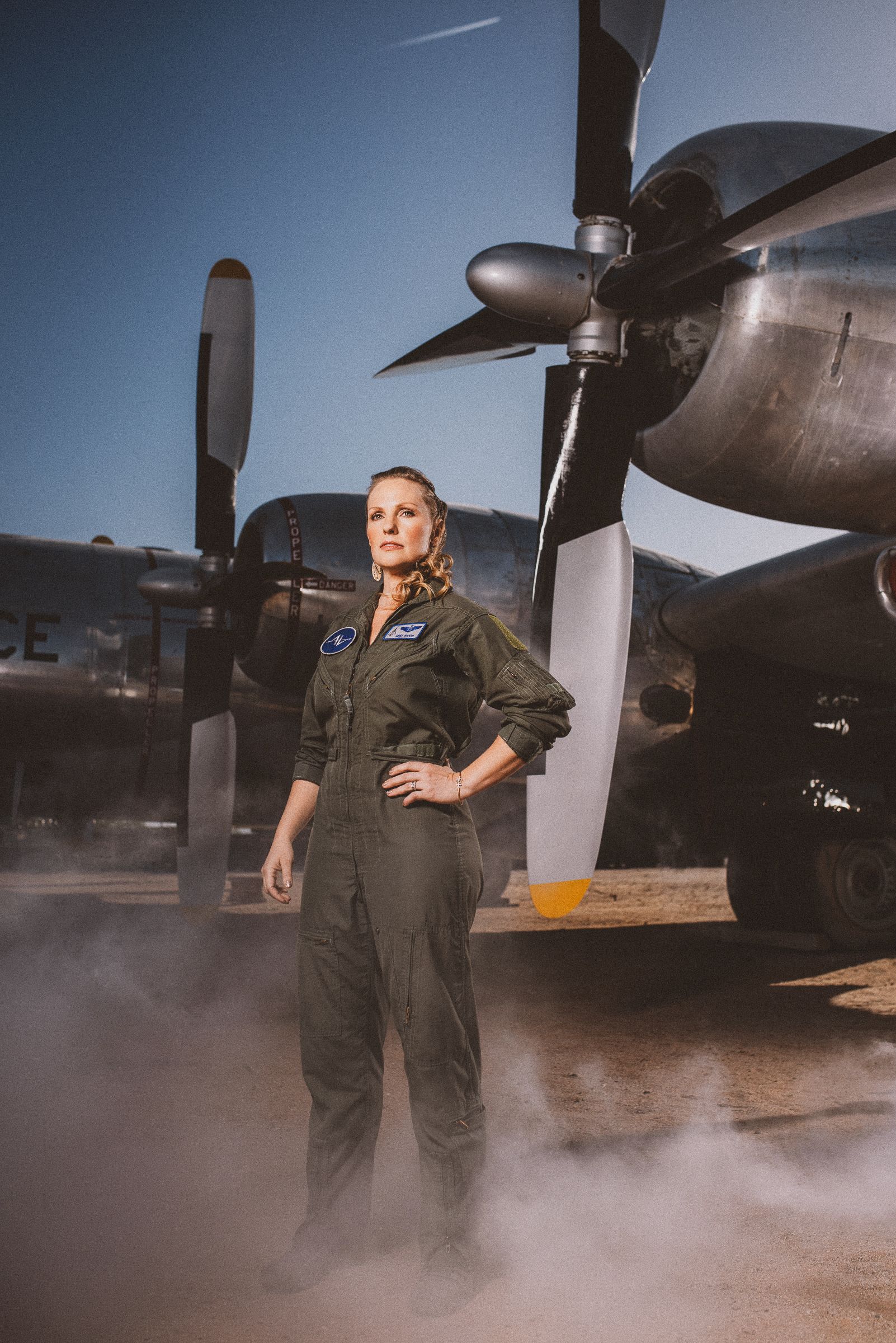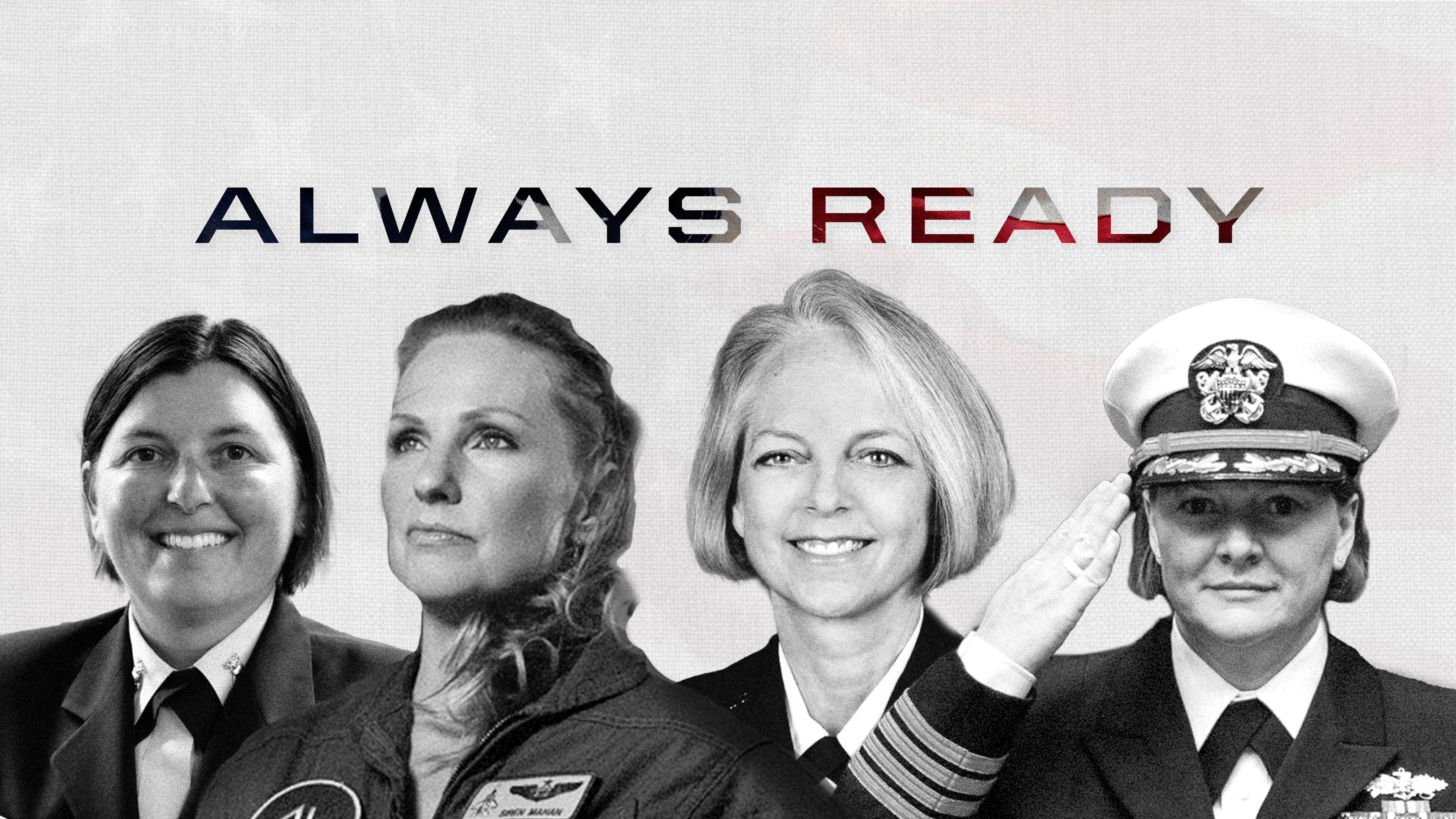
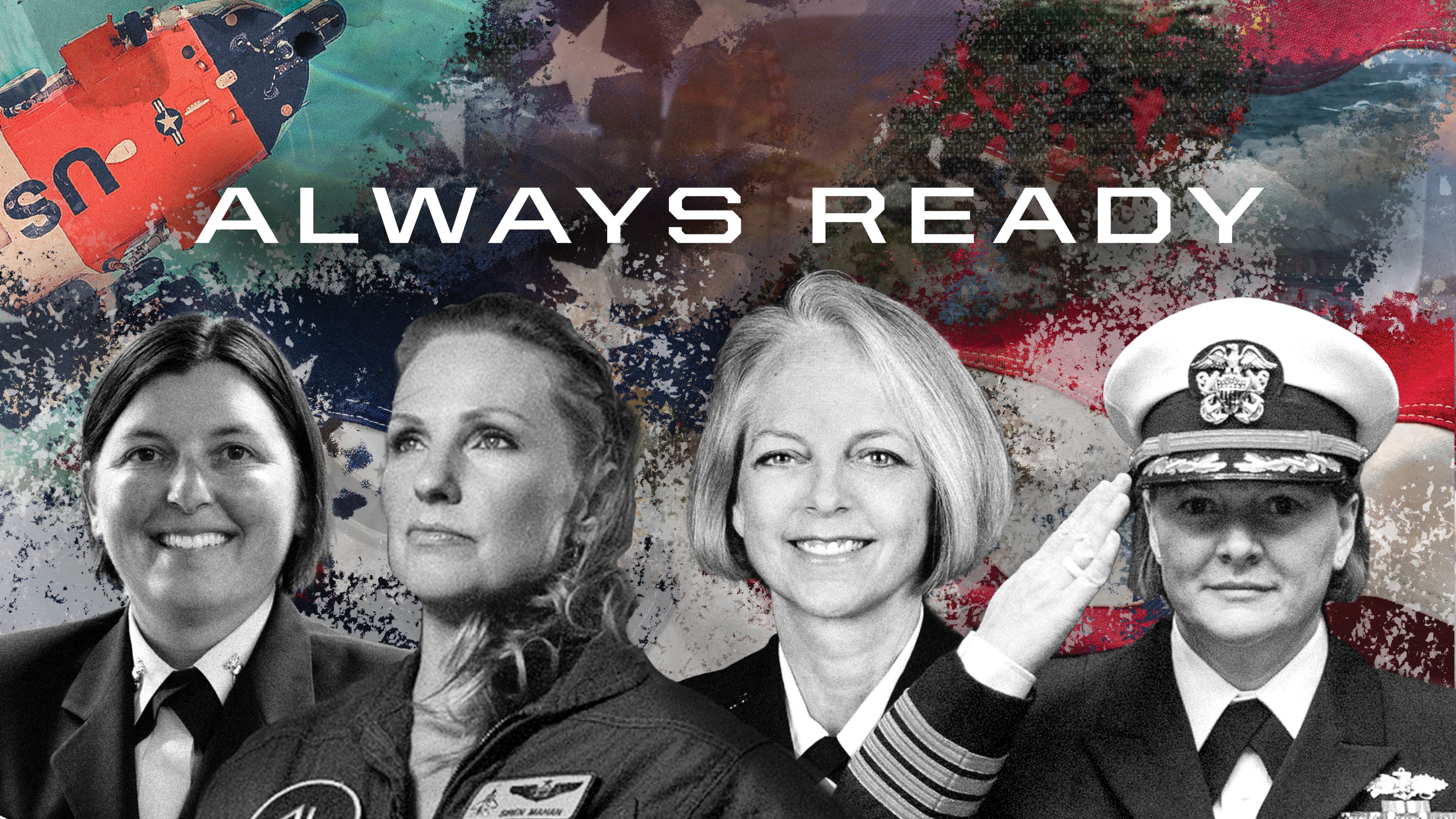
// By Natalie Olsen
Purdue University has a strong tradition of advancing the role of women in the armed forces, building on the path forged by Dorothy Stratton—Purdue’s first full-time dean of women—who left the university to join the U.S. Navy during World War II.
Known for her pioneering efforts to create opportunities for women in male-dominated military fields, Stratton rose through the ranks to found and serve as the first director of the U.S. Coast Guard Women’s Reserve. The branch is more commonly known as SPARS—a term Stratton coined from the Coast Guard’s motto, Semper Paratus, and its English translation, Always Ready.
Today, Purdue’s commitment to the U.S. military is evident in initiatives such as the Dorothy Stratton Veteran and Military Success Center, the Military and Family Research Institute, and its highly regarded Reserve Officers’ Training Corps (ROTC) programs, which are among the largest and most successful in the nation.
That commitment is also reflected in the experiences of Purdue alumnae who have served. Here, we highlight the journeys of four graduates who have built military careers, exemplifying leadership and dedication in their fields.

// By Natalie Olsen
Purdue University has a strong tradition of advancing the role of women in the armed forces, building on the path forged by Dorothy Stratton—Purdue’s first full-time dean of women—who left the university to join the U.S. Navy during World War II.
Known for her pioneering efforts to create opportunities for women in male-dominated military fields, Stratton rose through the ranks to found and serve as the first director of the U.S. Coast Guard Women’s Reserve. The branch is more commonly known as SPARS—a term Stratton coined from the Coast Guard’s motto, Semper Paratus, and its English translation, Always Ready.
Today, Purdue’s commitment to the U.S. military is evident in initiatives such as the Dorothy Stratton Veteran and Military Success Center, the Military and Family Research Institute, and its highly regarded Reserve Officers’ Training Corps (ROTC) programs, which are among the largest and most successful in the nation.
That commitment is also reflected in the experiences of Purdue alumnae who have served. Here, we highlight the journeys of four graduates who have built military careers, exemplifying leadership and dedication in their fields.

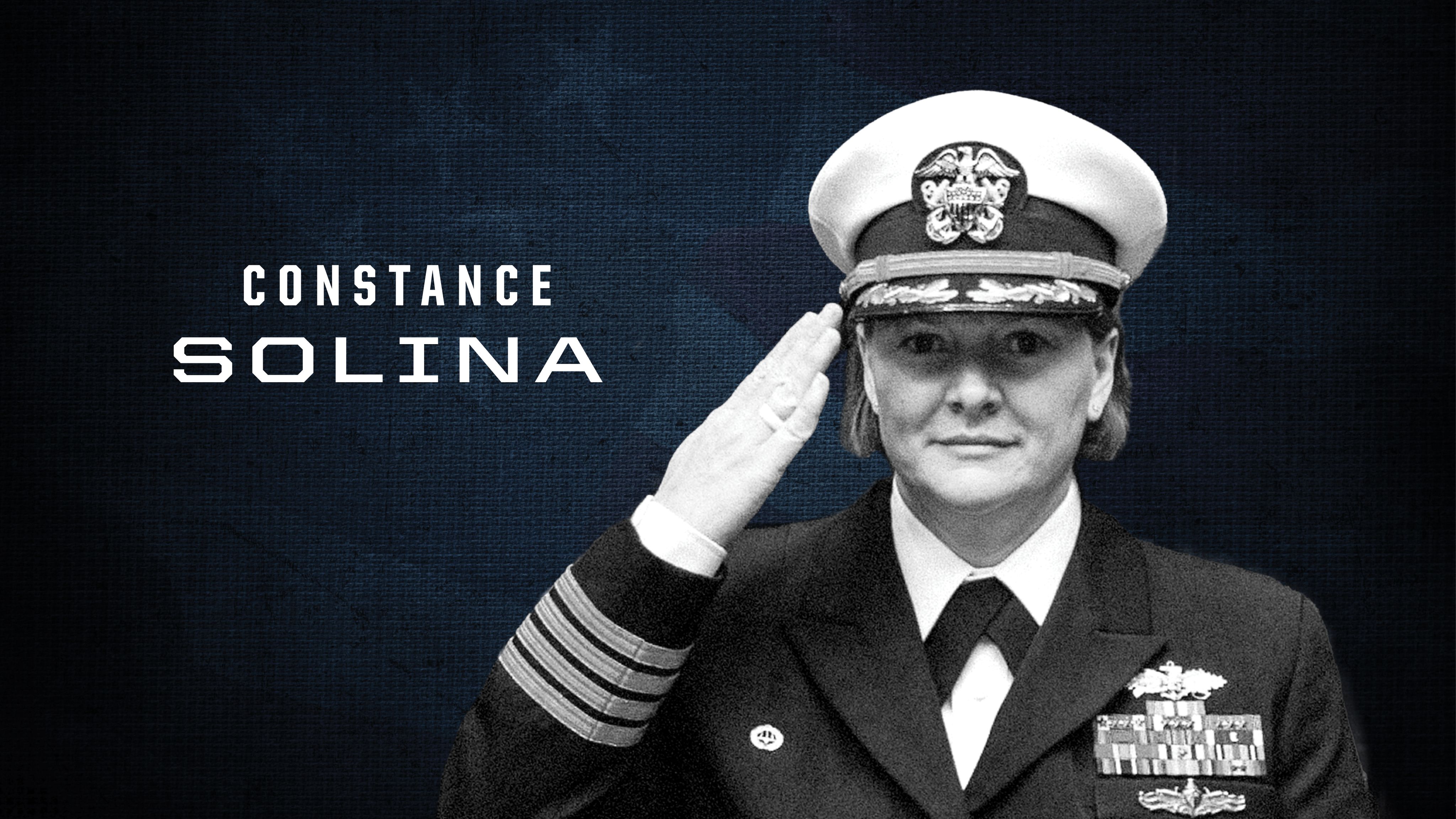
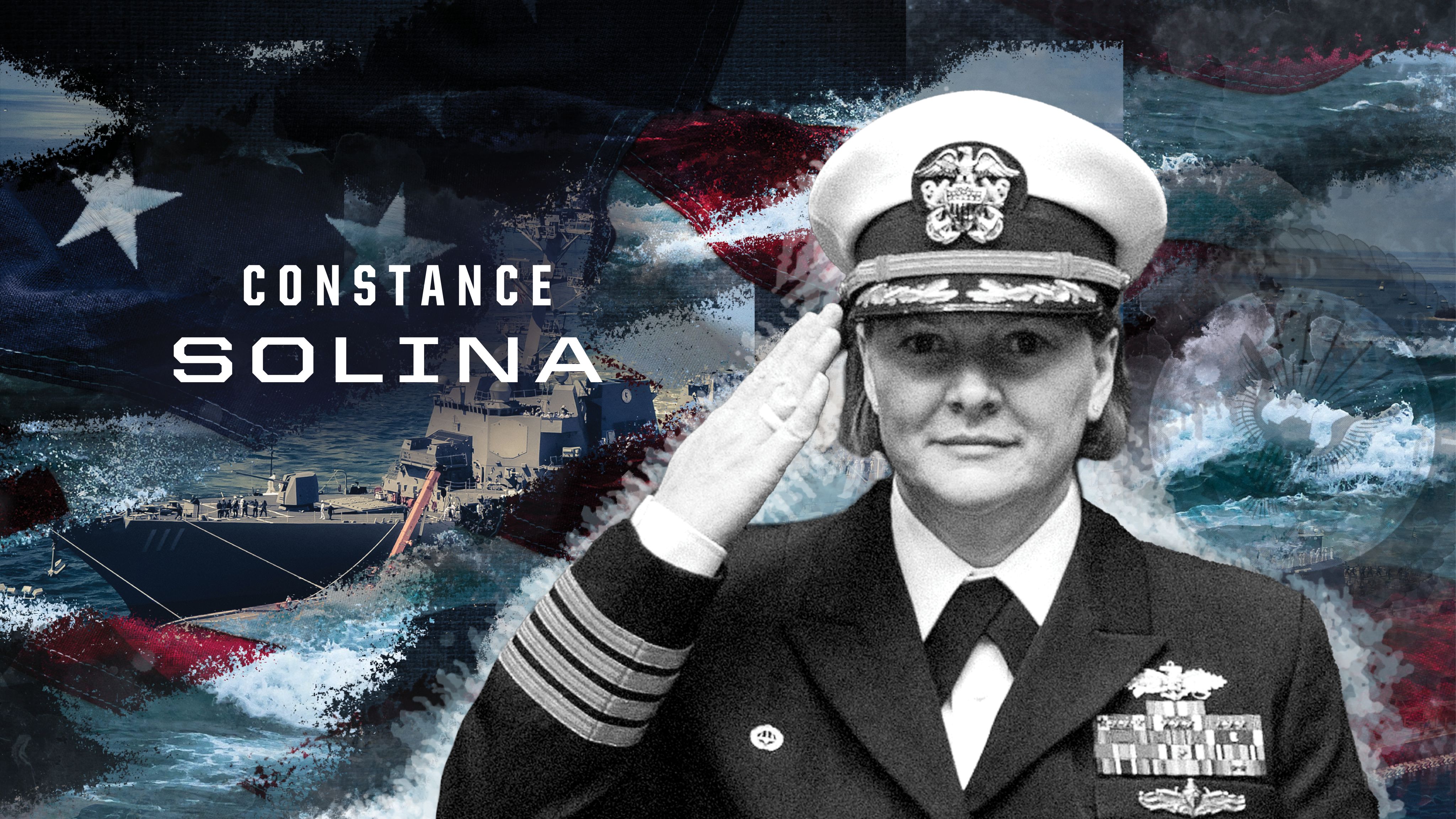
In one of her earliest memories from the U.S. Navy, Constance (Danner) Solina (CE’00) recalls being aboard a combatant ship as the command duty officer and providing surveillance of Washington, DC, on 9/11—in the midst of three hurricanes.
It was a fitting introduction to her career ahead.
“I was learning how to lead people in very high-stress environments,” she says.
Now, as the commodore and first woman in charge of Naval Construction Group 2 and the Atlantic Seabees, Solina oversees preparation, training, and equipment-readiness needs for 4,550 active and reserve sailors—ensuring units are ready for global deployment across five geographically separate combatant commands around the world.
If that sounds like a formidable task, Solina credits her college education with preparing her for the challenge.
“Everything builds on what came before.”
Following in the footsteps of her grandfather, parents, and aunts, Solina continued her family’s Boilermaker tradition through a Naval ROTC scholarship at Purdue, where she participated in the Alpha Xi Delta women’s fraternity and played goalkeeper on the university’s first women’s varsity soccer team.
She says that each experience helped shape her and taught her problem-solving, time and conflict management, and how to be a team player.
Solina graduated with a bachelor of science degree in civil engineering on May 12, 2000—the same day she was commissioned as a surface warfare naval officer.
Her first tour was as the communications officer and combat information center officer aboard the USS Spruance (DD-963), the guided-missile destroyer patrolling coastal waters the day the Twin Towers fell.
In the decades that followed, Solina’s assignments in engineering and program management spanned the globe. She deployed to the Mediterranean three times; led operations in Iraq as a company commander, battalion intelligence officer, and training officer; and served in Okinawa as a battalion executive officer.
Additional roles have included deputy resident officer of construction, public works officer, and installations and logistics director. In 2021, she was chief engineer for the United States European Command’s logistics directorate.
In May, Solina will have been on active duty for 25 years.
“The things I Iove about my job are the people and the mission—what we do and how we defend and provide to others, including supporting other countries and their ability to defend themselves.”
Solina credits her success to hard work.
“I worked my way up,” she says. “The relationships you build, the connections you build, having the opportunity to lead different teams—they all make you who you are.”
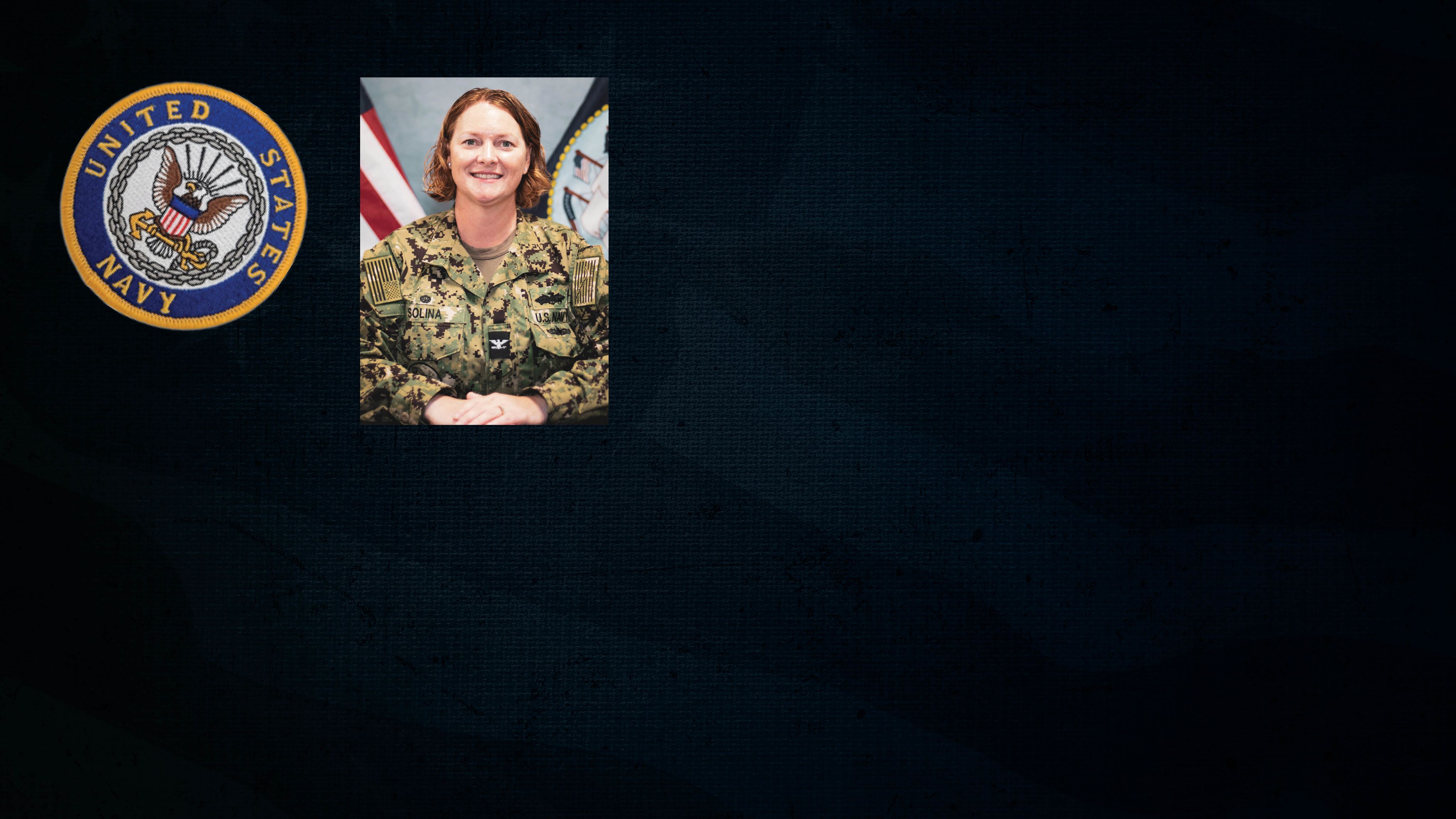
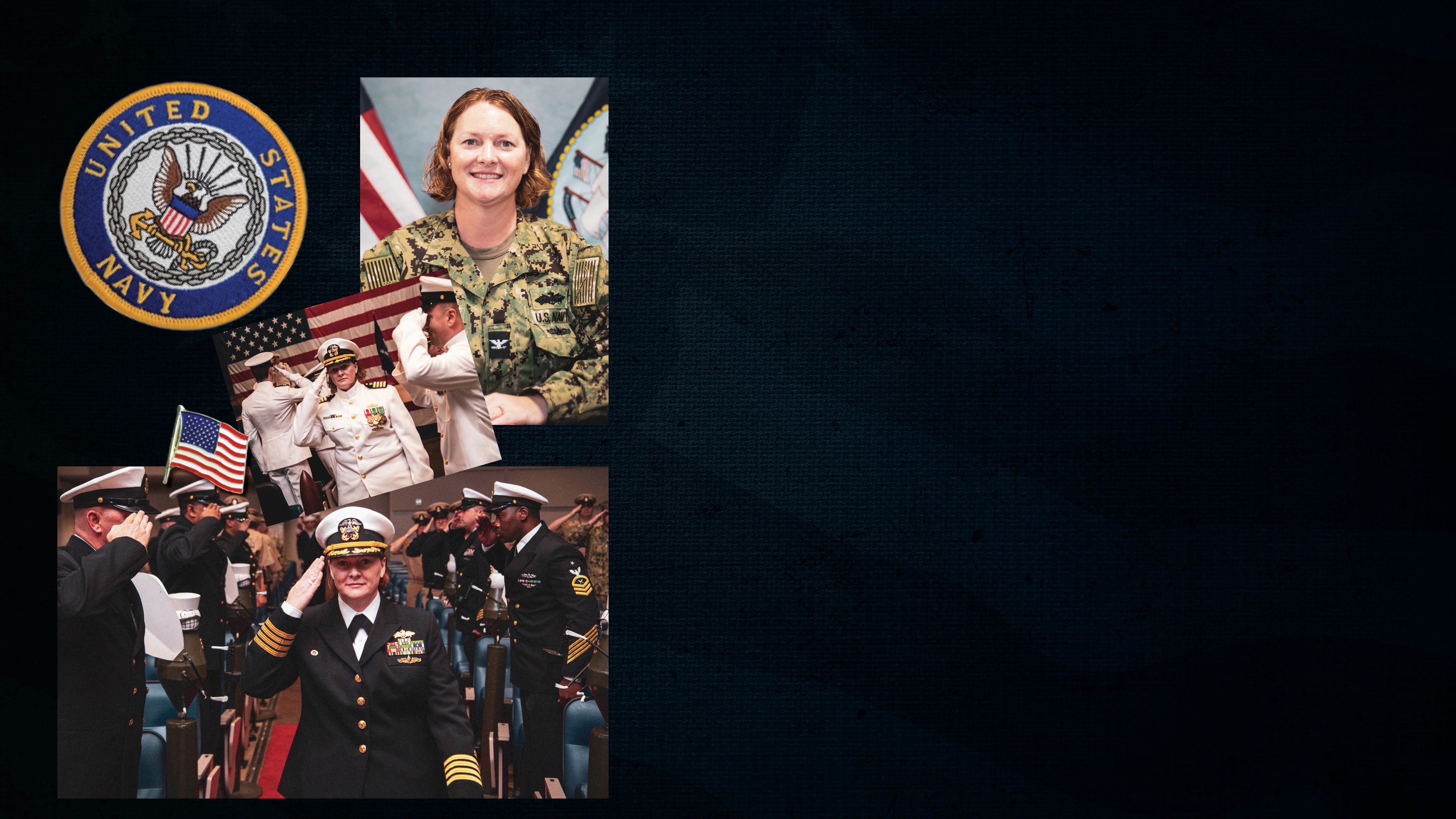
In one of her earliest memories from the U.S. Navy, Constance (Danner) Solina (CE’00) recalls being aboard a combatant ship as the command duty officer and providing surveillance of Washington, DC, on 9/11—in the midst of three hurricanes.
It was a fitting introduction to her career ahead.
“I was learning how to lead people in very high-stress environments,” she says.
Now, as the commodore and first woman in charge of Naval Construction Group 2 and the Atlantic Seabees, Solina oversees preparation, training, and equipment-readiness needs for 4,550 active and reserve sailors—ensuring units are ready for global deployment across five geographically separate combatant commands around the world.
If that sounds like a formidable task, Solina credits her college education with preparing her for the challenge.
“Everything builds on what came before.”
Following in the footsteps of her grandfather, parents, and aunts, Solina continued her family’s Boilermaker tradition through a Naval ROTC scholarship at Purdue, where she participated in the Alpha Xi Delta women’s fraternity and played goalkeeper on the university’s first women’s varsity soccer team.
She says that each experience helped shape her and taught her problem-solving, time and conflict management, and how to be a team player.
Solina graduated with a bachelor of science degree in civil engineering on May 12, 2000—the same day she was commissioned as a surface warfare naval officer.
Her first tour was as the communications officer and combat information center officer aboard the USS Spruance (DD-963), the guided-missile destroyer patrolling coastal waters the day the Twin Towers fell.
In the decades that followed, Solina’s assignments in engineering and program management spanned the globe. She deployed to the Mediterranean three times; led operations in Iraq as a company commander, battalion intelligence officer, and training officer; and served in Okinawa as a battalion executive officer.
Additional roles have included deputy resident officer of construction, public works officer, and installations and logistics director. In 2021, she was chief engineer for the United States European Command’s logistics directorate.
In May, Solina will have been on active duty for 25 years.
“The things I Iove about my job are the people and the mission—what we do and how we defend and provide to others, including supporting other countries and their ability to defend themselves.”
Solina credits her success to hard work.
“I worked my way up,” she says. “The relationships you build, the connections you build, having the opportunity to lead different teams—they all make you who you are.”

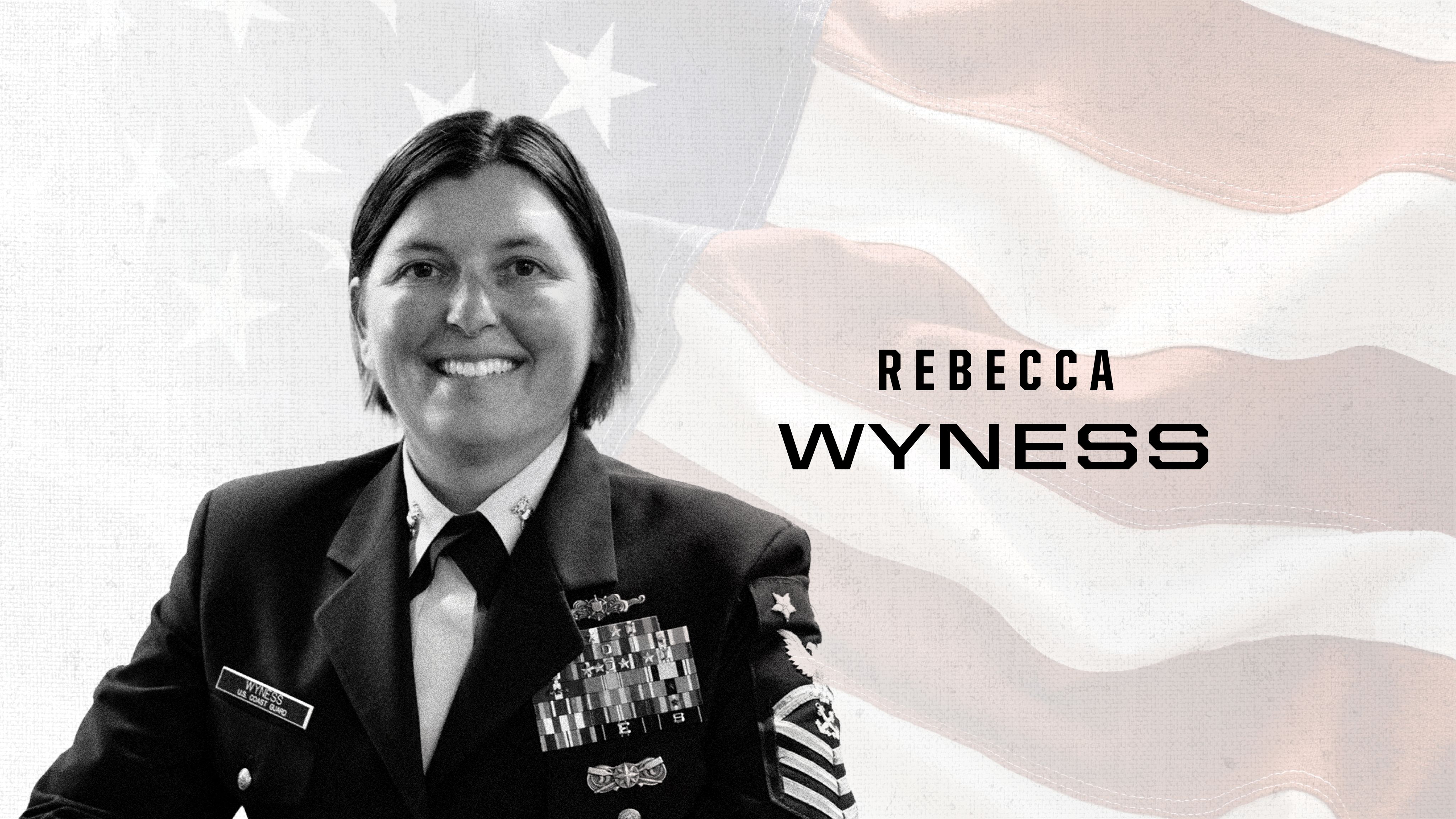
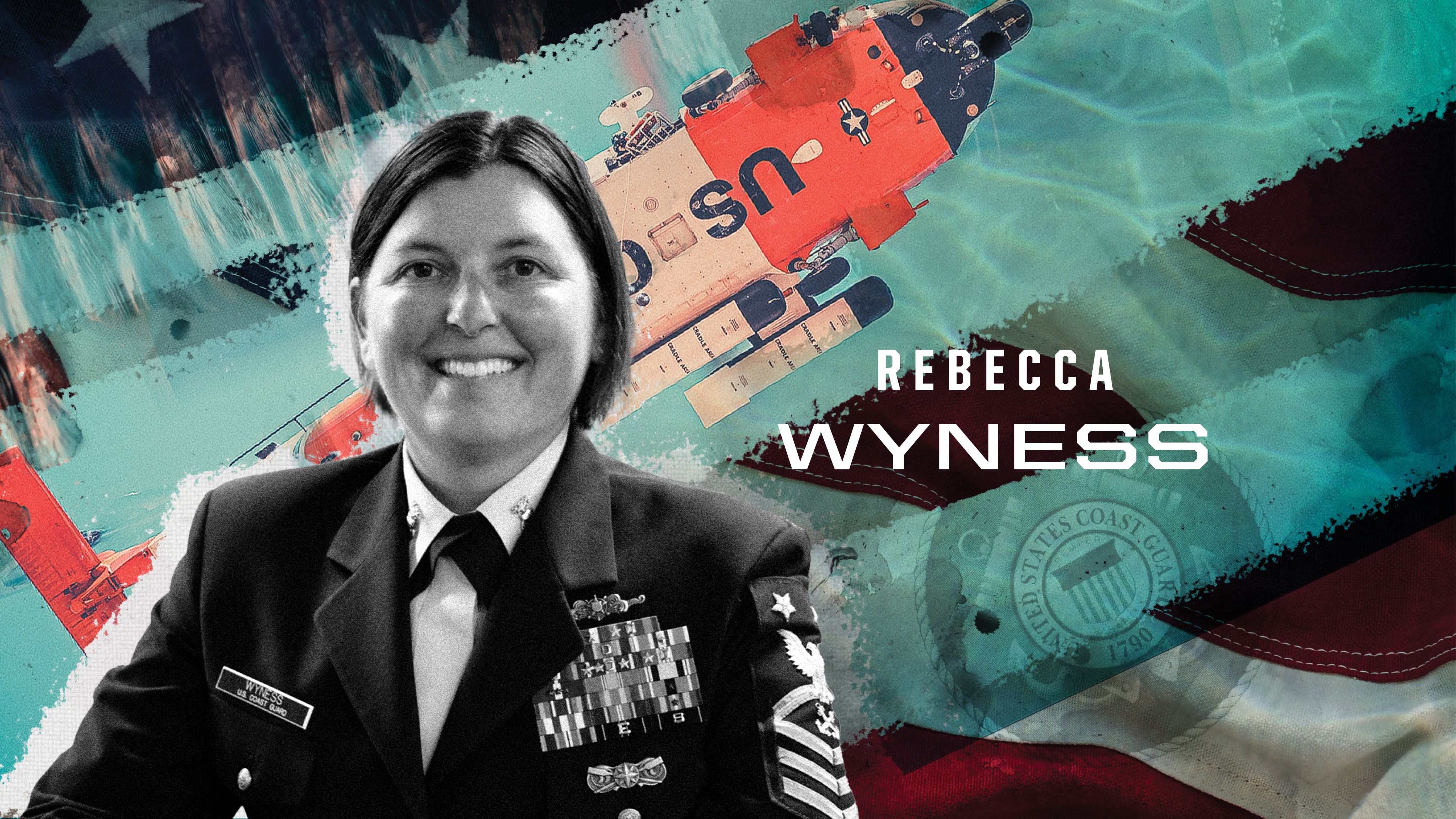
Rebecca Wyness (PNW’17) feels most at peace when standing on a boat deck under the stars, listening to a vessel cut through the water.
So it’s fitting that she serves as boatswain’s mate command master chief, providing guidance on all aspects of seamanship, navigation, small-boat operations, and crew welfare to the commanding Coast Guard officer for Base Miami Beach.
“It is my natural reaction to fight the elements, the wind, and the seas,” she says. “You would’ve thought I was raised on boats.”
In fact, it was just the opposite.
Growing up in rural Southeast Minnesota, Wyness had little exposure to water of any kind—apart from a rare Fourth of July weekend camping at the Mississippi River.
But life has a way of changing course. When Wyness’s parents declined to give her legal consent to join the Army at age 17, she met a Coast Guard recruiter instead.
“And the rest is history,” she says.
In April 1999, Wyness signed on to join the Coast Guard in Cape May, New Jersey. Over the next 10 years, she was stationed in Alabama, California, Louisiana, and Bahrain for assignments related to enforcing maritime law, making rescues, and protecting the environment.
In 2009, she became the officer in charge of station in Michigan City, Indiana, where she performed collateral duty as an education service officer—an assignment that would set off a ripple effect.
“If someone wanted to go to college, I’d help them navigate the process, but I had never been through it myself,” she says.
When James Dworkin, chancellor emeritus of what is now Purdue Northwest, reached out to Wyness asking if her station would participate in a Veterans Day event, she got her first glance at the educational resources offered at Purdue.
“All of the stars aligned to give me a boost to seek out college,” she says.
At age 29, Wyness began her undergraduate studies while maintaining full-time leadership roles in the Coast Guard.
“There were days when I thought, Why am I doing this to myself?” she says. “But I wouldn’t change any of it.”
Eight years later, she earned her bachelor of science degree in hospitality and tourism management—and almost immediately enrolled in a master of science program at Michigan State University to study management, strategy, and leadership.
Over a Coast Guard career that has now spanned more than 25 years, Wyness’s maritime duties have turned from on-water operations to mission support.
“If someone knocks on my door, I never know what kind of questions or concerns they may have, but I’m always ready to help,” she says.
That mindset of readiness is represented in her Purdue degree, which hangs front and center in her office.
“Hopefully, it’s the first thing people see,” she says. “It’s something I know I worked above and beyond for.”
Wyness also hopes it inspires others.
“For me, it’s a very powerful thing to have on my wall—and it strikes conversations. When people see it, they are curious, and I tell them about the journey I went on. If I can do it, they can do it.”
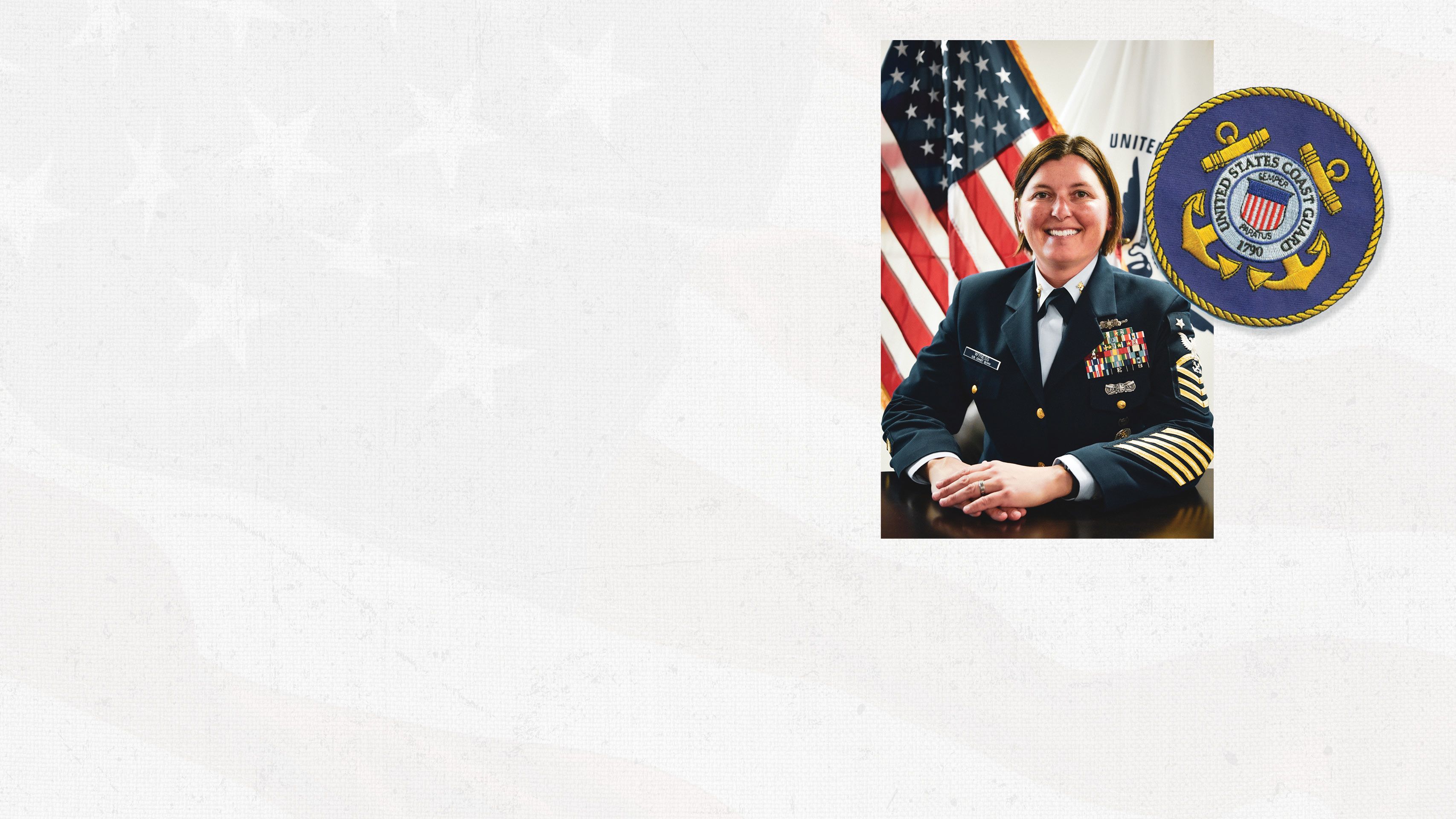
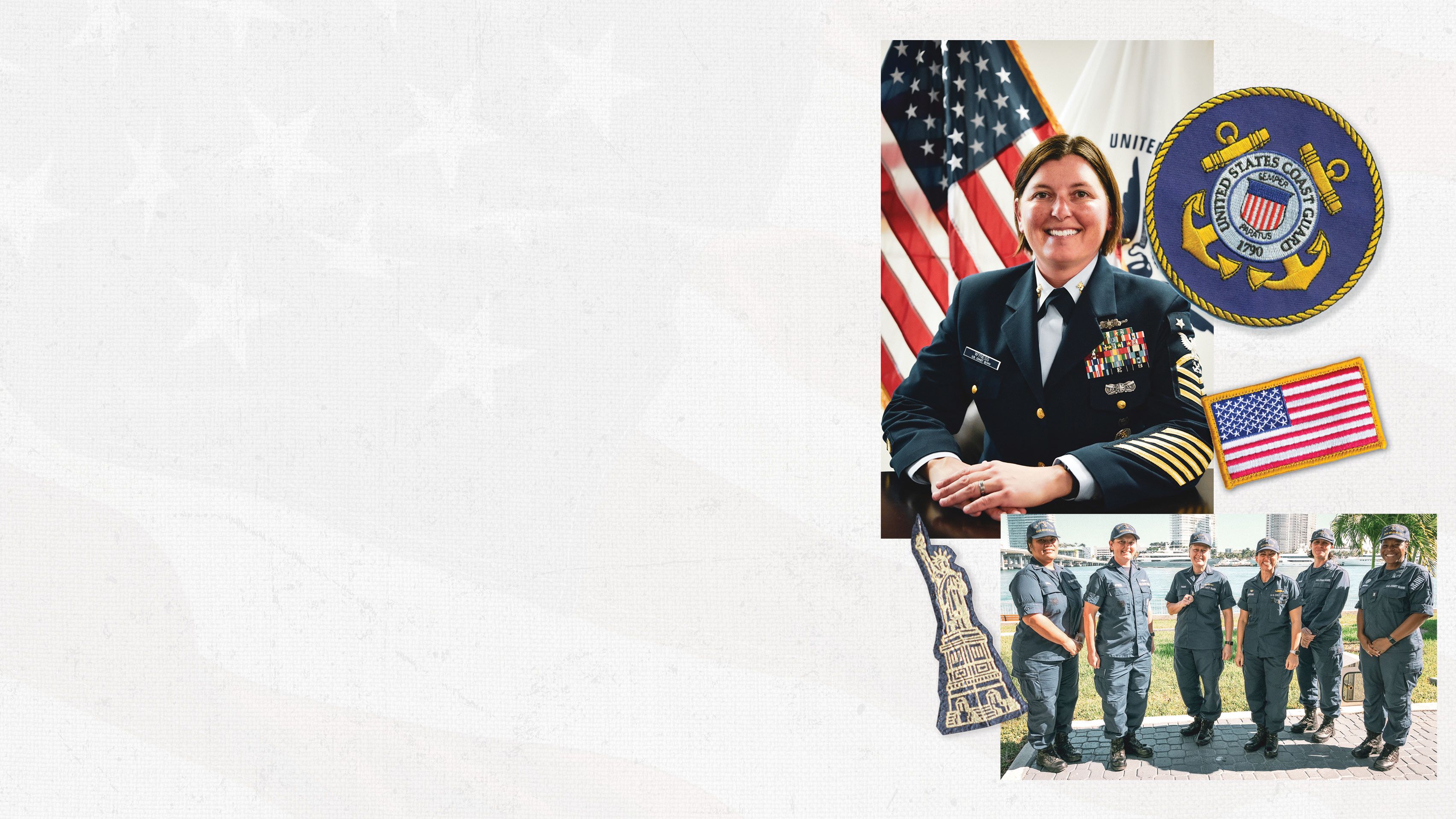
Rebecca Wyness (PNW’17) feels most at peace when standing on a boat deck under the stars, listening to a vessel cut through the water.
So it’s fitting that she serves as boatswain’s mate command master chief, providing guidance on all aspects of seamanship, navigation, small-boat operations, and crew welfare to the commanding Coast Guard officer for Base Miami Beach.
“It is my natural reaction to fight the elements, the wind, and the seas,” she says. “You would’ve thought I was raised on boats.”
In fact, it was just the opposite.
Growing up in rural Southeast Minnesota, Wyness had little exposure to water of any kind—apart from a rare Fourth of July weekend camping at the Mississippi River.
But life has a way of changing course. When Wyness’s parents declined to give her legal consent to join the Army at age 17, she met a Coast Guard recruiter instead.
“And the rest is history,” she says.
In April 1999, Wyness signed on to join the Coast Guard in Cape May, New Jersey. Over the next 10 years, she was stationed in Alabama, California, Louisiana, and Bahrain for assignments related to enforcing maritime law, making rescues, and protecting the environment.
In 2009, she became the officer in charge of station in Michigan City, Indiana, where she performed collateral duty as an education service officer—an assignment that would set off a ripple effect.
“If someone wanted to go to college, I’d help them navigate the process, but I had never been through it myself,” she says.
When James Dworkin, chancellor emeritus of what is now Purdue Northwest, reached out to Wyness asking if her station would participate in a Veterans Day event, she got her first glance at the educational resources offered at Purdue.
“All of the stars aligned to give me a boost to seek out college,” she says.
At age 29, Wyness began her undergraduate studies while maintaining full-time leadership roles in the Coast Guard.
“There were days when I thought, Why am I doing this to myself?” she says. “But I wouldn’t change any of it.”
Eight years later, she earned her bachelor of science degree in hospitality and tourism management—and almost immediately enrolled in a master of science program at Michigan State University to study management, strategy, and leadership.
Over a Coast Guard career that has now spanned more than 25 years, Wyness’s maritime duties have turned from on-water operations to mission support.
“If someone knocks on my door, I never know what kind of questions or concerns they may have, but I’m always ready to help,” she says.
That mindset of readiness is represented in her Purdue degree, which hangs front and center in her office.
“Hopefully, it’s the first thing people see,” she says. “It’s something I know I worked above and beyond for.”
Wyness also hopes it inspires others.
“For me, it’s a very powerful thing to have on my wall—and it strikes conversations. When people see it, they are curious, and I tell them about the journey I went on. If I can do it, they can do it.”

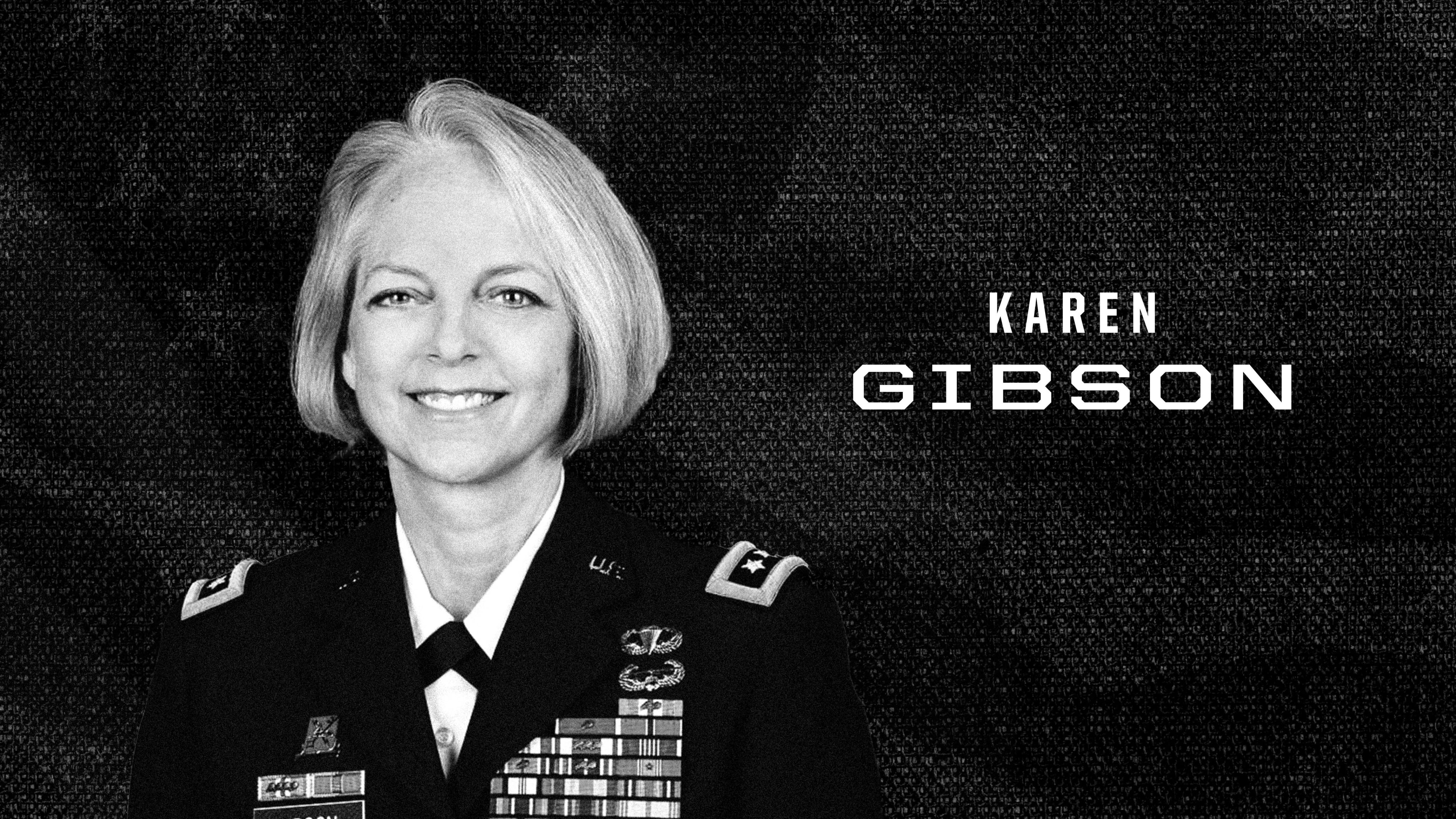
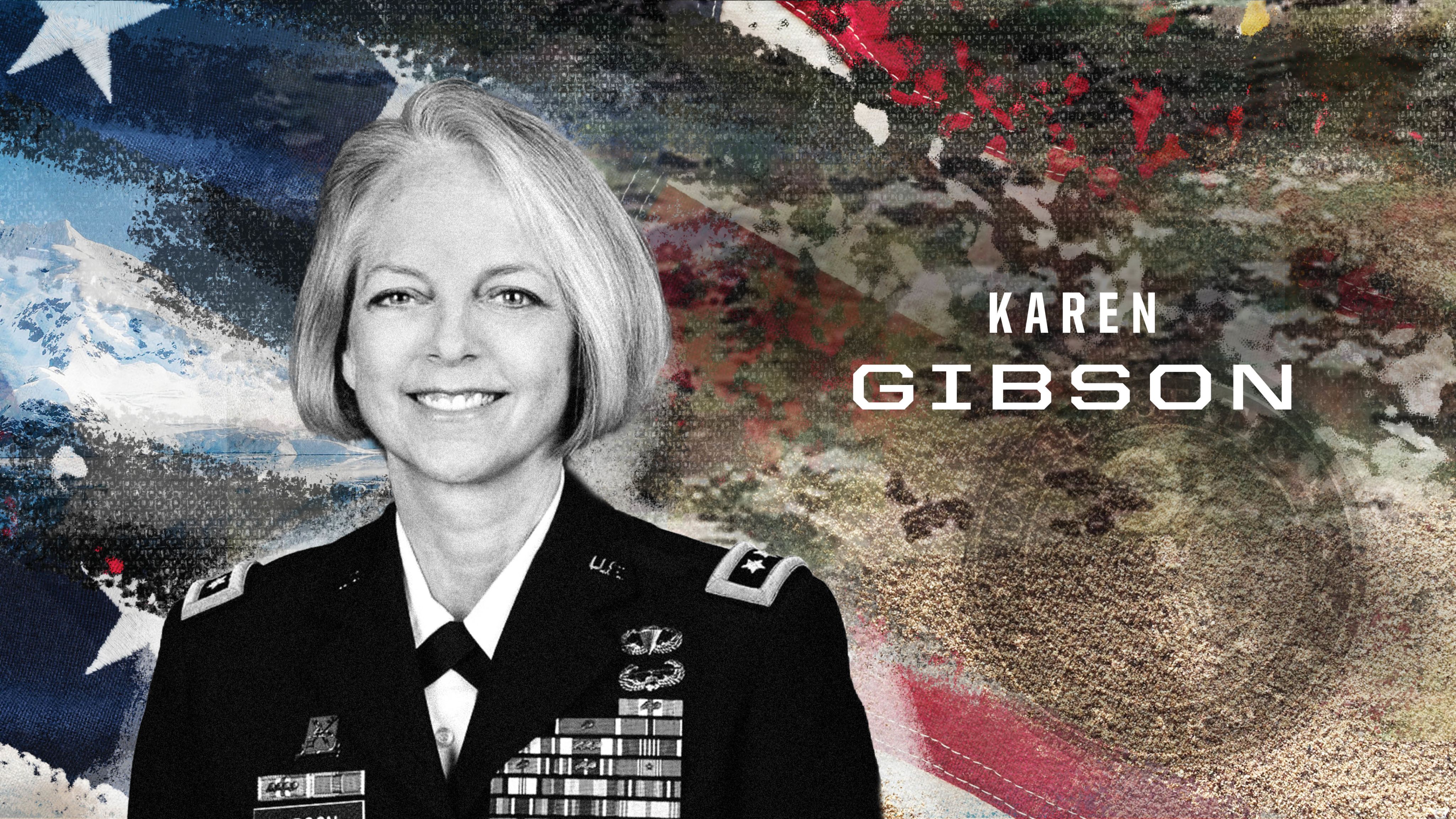
Karen Gibson (IE’86), a retired U.S. Army lieutenant general, had no intention of making a career out of the military.
“I was going to do four years and figure out what to do with my life,” she says.
After enrolling in the Army ROTC at Purdue University, however, she fell in love with service.
“I decided there was nothing I’d rather be than an American soldier,” Gibson says. “I loved the challenge—and being a soldier challenged every facet of my being.”
Upon earning her bachelor of science degree in industrial engineering, Gibson accepted her first assignment in Fort Richardson, Alaska, where she recalls sleeping in fields with temperatures plunging to 50 degrees below zero.
“It was a terrific place for a girl who grew up in the Northern Rockies,” says Gibson, who hails from Bozeman, Montana.
In the years that followed, Gibson spent three years in Hawaii followed by four years stationed on the Korean Peninsula—as well as deployments to Afghanistan, Iraq, and East Africa.
Throughout her 33-year military career, Gibson held a series of pivotal roles in intelligence and cyberspace operations. Her distinguished assignments included serving as the director of intelligence for the Combined Joint Task Force–Operation Inherent Resolve, the multinational coalition to defeat the Islamic State in Iraq and Syria; director of intelligence for United States Central Command, where she supported military strategies and operations across the Middle East; and deputy commanding general for U.S. Army Cyber Command.
“I felt that as long as I was making a difference, still enjoying it, and making a contribution to national security, I wanted to keep doing it,” she says. “I truly relished being part of a team of men and women mutually inspired for the greater good.”
In 2020, Gibson retired from the U.S. Army as a three-star lieutenant general. But within a year, she assumed a new role as sergeant at arms of the United States Senate, a position she held for nearly four years that involved maintaining security, ensuring protocol, serving as executive officer for support services, and managing communications in the Senate.
Of her decades in service, she says one of many takeaways was to never let others’ expectations define her.
“My parents instilled in me that I was not bound by societal expectations of what a girl can or can’t do. You decide what you’re capable of.”
In 2021, Gibson was inducted into the Purdue ROTC Hall of Fame, following in the footsteps of both her father and grandfather.
“I was so proud,” she says. “When I was inducted, it felt like I had arrived.”
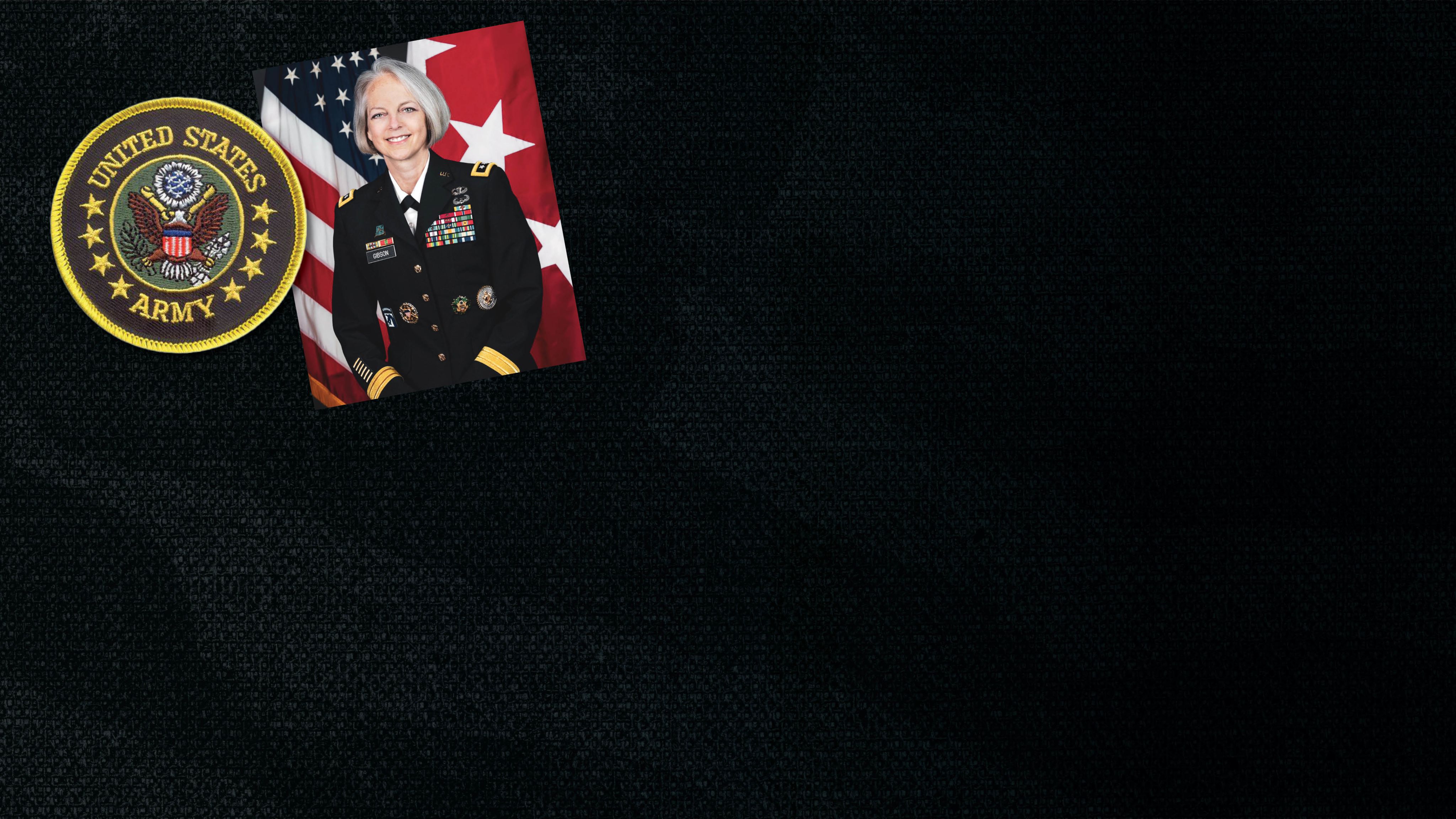
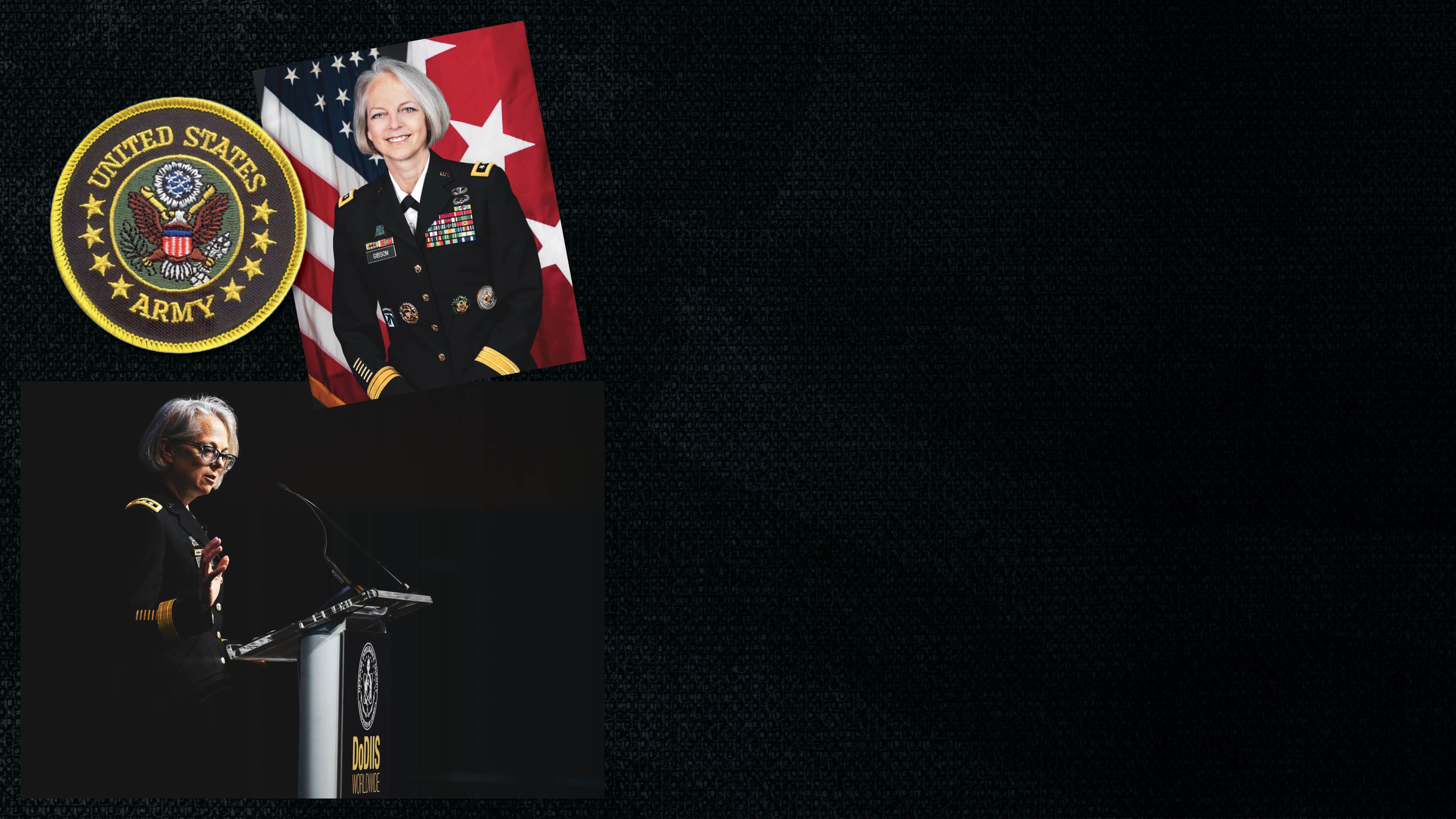
Karen Gibson (IE’86), a retired U.S. Army lieutenant general, had no intention of making a career out of the military.
“I was going to do four years and figure out what to do with my life,” she says.
After enrolling in the Army ROTC at Purdue University, however, she fell in love with service.
“I decided there was nothing I’d rather be than an American soldier,” Gibson says. “I loved the challenge—and being a soldier challenged every facet of my being.”
Upon earning her bachelor of science degree in industrial engineering, Gibson accepted her first assignment in Fort Richardson, Alaska, where she recalls sleeping in fields with temperatures plunging to 50 degrees below zero.
“It was a terrific place for a girl who grew up in the Northern Rockies,” says Gibson, who hails from Bozeman, Montana.
In the years that followed, Gibson spent three years in Hawaii followed by four years stationed on the Korean Peninsula—as well as deployments to Afghanistan, Iraq, and East Africa.
Throughout her 33-year military career, Gibson held a series of pivotal roles in intelligence and cyberspace operations. Her distinguished assignments included serving as the director of intelligence for the Combined Joint Task Force–Operation Inherent Resolve, the multinational coalition to defeat the Islamic State in Iraq and Syria; director of intelligence for United States Central Command, where she supported military strategies and operations across the Middle East; and deputy commanding general for U.S. Army Cyber Command.
“I felt that as long as I was making a difference, still enjoying it, and making a contribution to national security, I wanted to keep doing it,” she says. “I truly relished being part of a team of men and women mutually inspired for the greater good.”
In 2020, Gibson retired from the U.S. Army as a three-star lieutenant general. But within a year, she assumed a new role as sergeant at arms of the United States Senate, a position she held for nearly four years that involved maintaining security, ensuring protocol, serving as executive officer for support services, and maintaining communications in the Senate.
Of her decades in service, she says one of many takeaways was to never let others’ expectations define her.
“My parents instilled in me that I was not bound by societal expectations of what a girl can or can’t do. You decide what you’re capable of.”
In 2021, Gibson was inducted into the Purdue ROTC Hall of Fame, following in the footsteps of both her father and grandfather.
“I was so proud,” she says. “When I was inducted, it felt like I had arrived.”

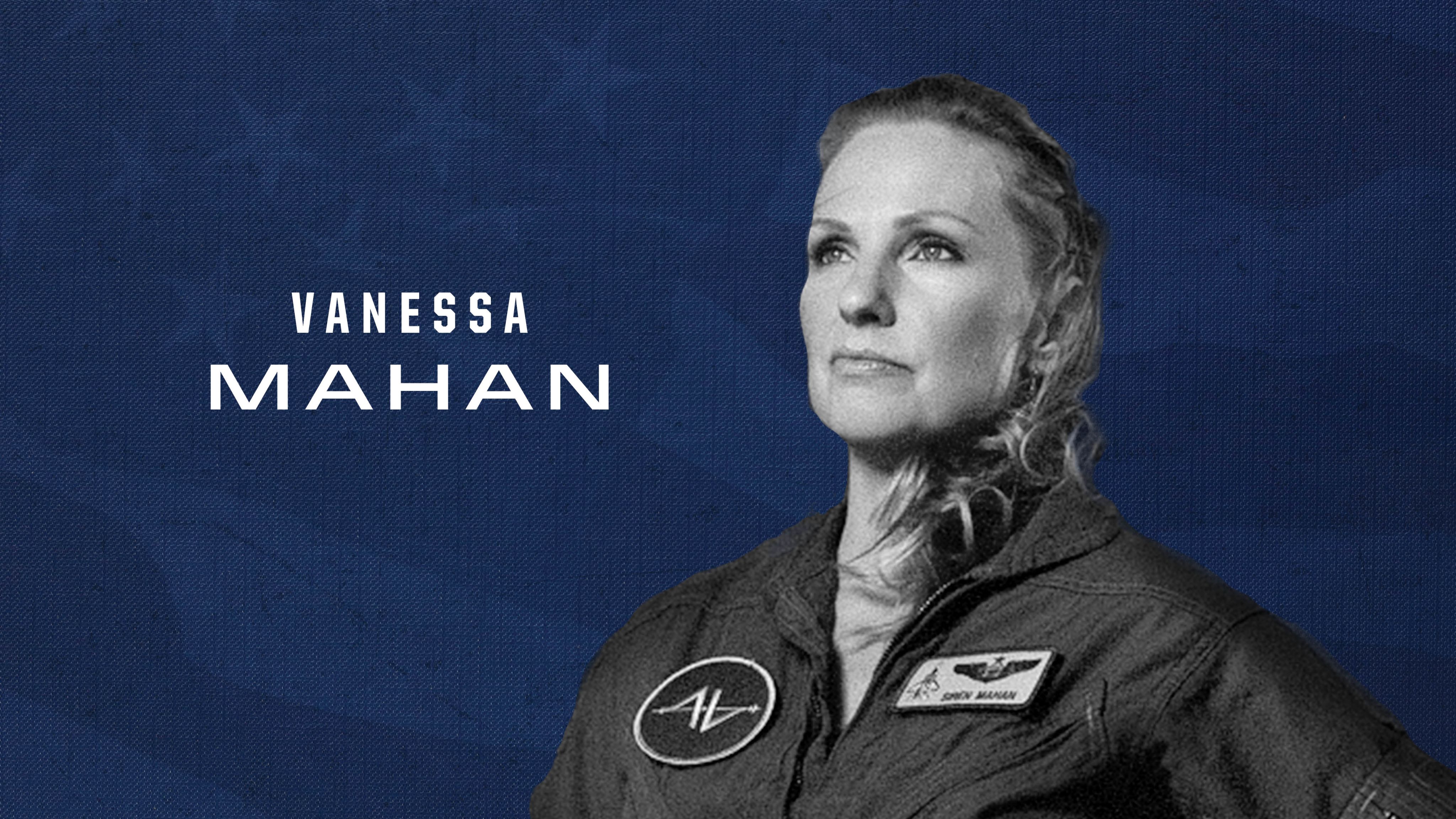
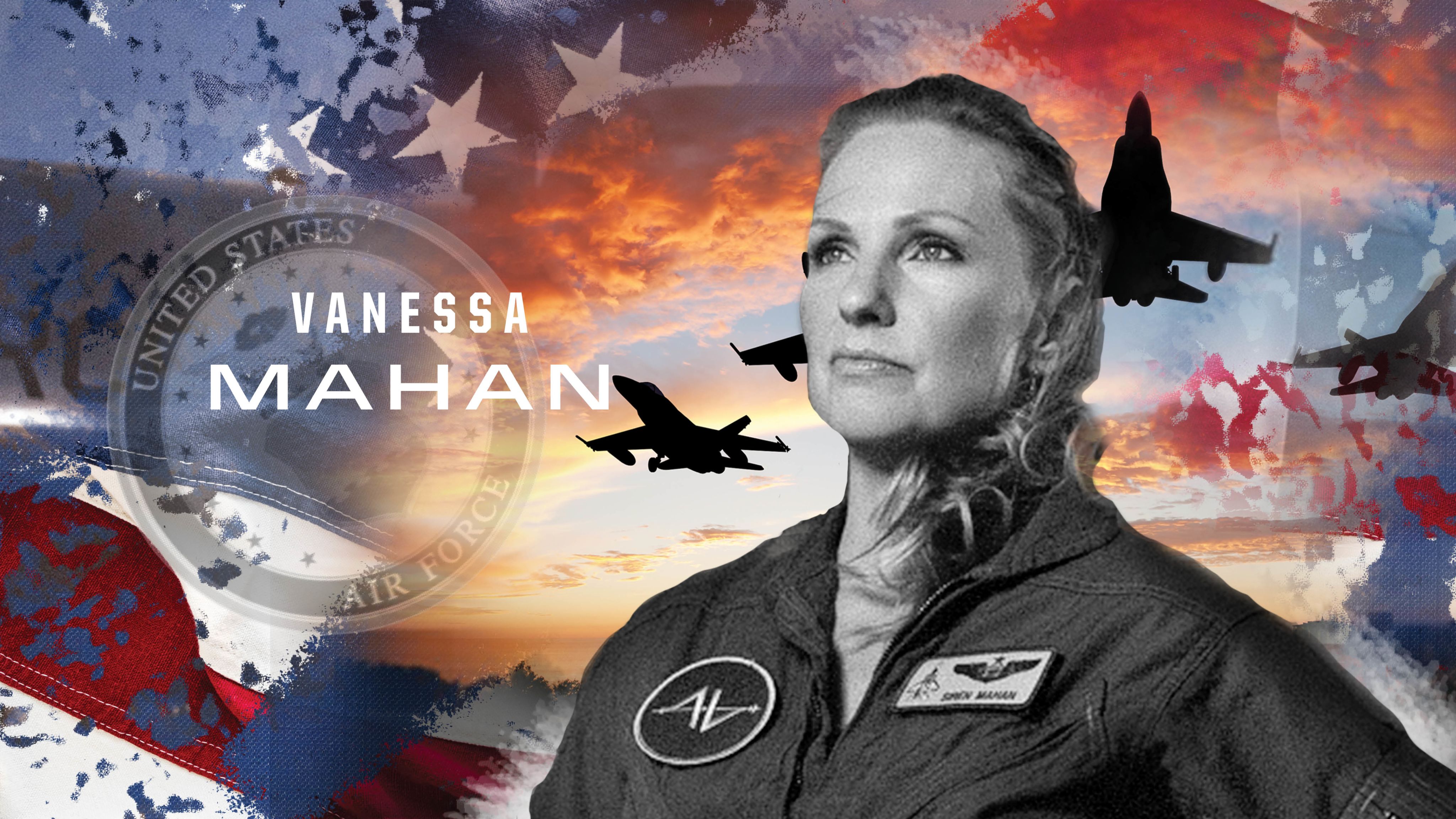
As a young girl, Vanessa (Price) Mahan (S’02) flew as a passenger in an airplane above the skies of Northwest Indiana with her father, an Army veteran and licensed pilot.
Bespectacled, Mahan knew early on that she would never be medically qualified to realize her dream of becoming a pilot in the U.S. Air Force.
But that didn’t mean she couldn’t take flight in her career.
“My goal was to be a weapon systems officer in the F-15E,” Mahan says, referring to the two-seater aircraft designed for Air Force combat operations.
Today, she serves as interim commander of the 701st Combat Operations Squadron (COS), leading air and space expertise—including combat operations, combat plans, intelligence, strategy, communications, and logistics—for the Korean Theater of Operations and beyond.
“To command is to serve. To lead the 701st COS and be entrusted with my airmen’s well-being and the success of our mission is the highest honor.”
But Mahan’s career, as she tells it, started far from the cockpit. Long before she tracked enemy aircraft, she tracked weather reports, flipping to the forecast in the morning paper as a kid.
“I think that’s what drew me in,” she says. “Flying depends so much on the weather.”
At Purdue, Mahan earned a bachelor of science degree in meteorology and was a distinguished graduate of Detachment 220, the university’s Air Force ROTC, when she commissioned as a second lieutenant.
Her next stop: joint strike undergraduate navigator training at Naval Air Station Pensacola, where she began training for a career in aviation.
In 2005, Mahan was formally designated a weapon systems officer, entrusted with understanding and managing the aircraft’s complex systems and weapons and working closely with the pilot to successfully complete missions in the F-15E Strike Eagle.
Shortly thereafter, Mahan deployed to Afghanistan with the 335th Expeditionary Fighter Squadron. Some missions were quiet. Others were anything but.
“People’s lives were literally in your hands, and there were times you couldn’t fly fast enough to get where you needed to be,” she says. “And other times, you fly missions and nothing happens.”
Mahan initially envisioned flying for the entirety of her career. But after 11 years of active duty, she transitioned to the Air Force Reserve, seeking a balance between service and family.
“Joining the Reserve was the best decision I made because I could be a mom and still continue to serve,” she says.
After pivoting completely to run a gym for the first portion of her time in the Reserve, Mahan has returned to a career in the Air Force now that her two children have grown.
Today, as a commander overseeing a squadron of 130 personnel at March Air Reserve Base in California, she leads with the same principles that have guided her all along—precision, adaptability, and knowing when to push and pull back.
“Serving in the military, as with any job, is about finding harmony between your work, your family, and yourself,” Mahan says. “You don’t want to over-G—which is essentially overstressing yourself or your family. But there are also times when work demands more, and you have to give more to work than your family. Effective communication and using your support systems are essential for success.”
More than two decades in, she’s still rising.
“I still feel that I have a job to do—and that I can have a positive impact on the Air Force,” Mahan says.
She hopes to spread knowledge about what it means to be in the Air Force, providing perspective for others contemplating their own career trajectories.
“Even if you’re never going to join yourself, maybe you’ll have a daughter or son who will say they are interested in flying,” Mahan says.
“Some see a challenge. I see a chance to rise. To lead, to serve, to soar above expectations—that’s the heart of an aviator and the soul of an airman. What will you rise to meet?”
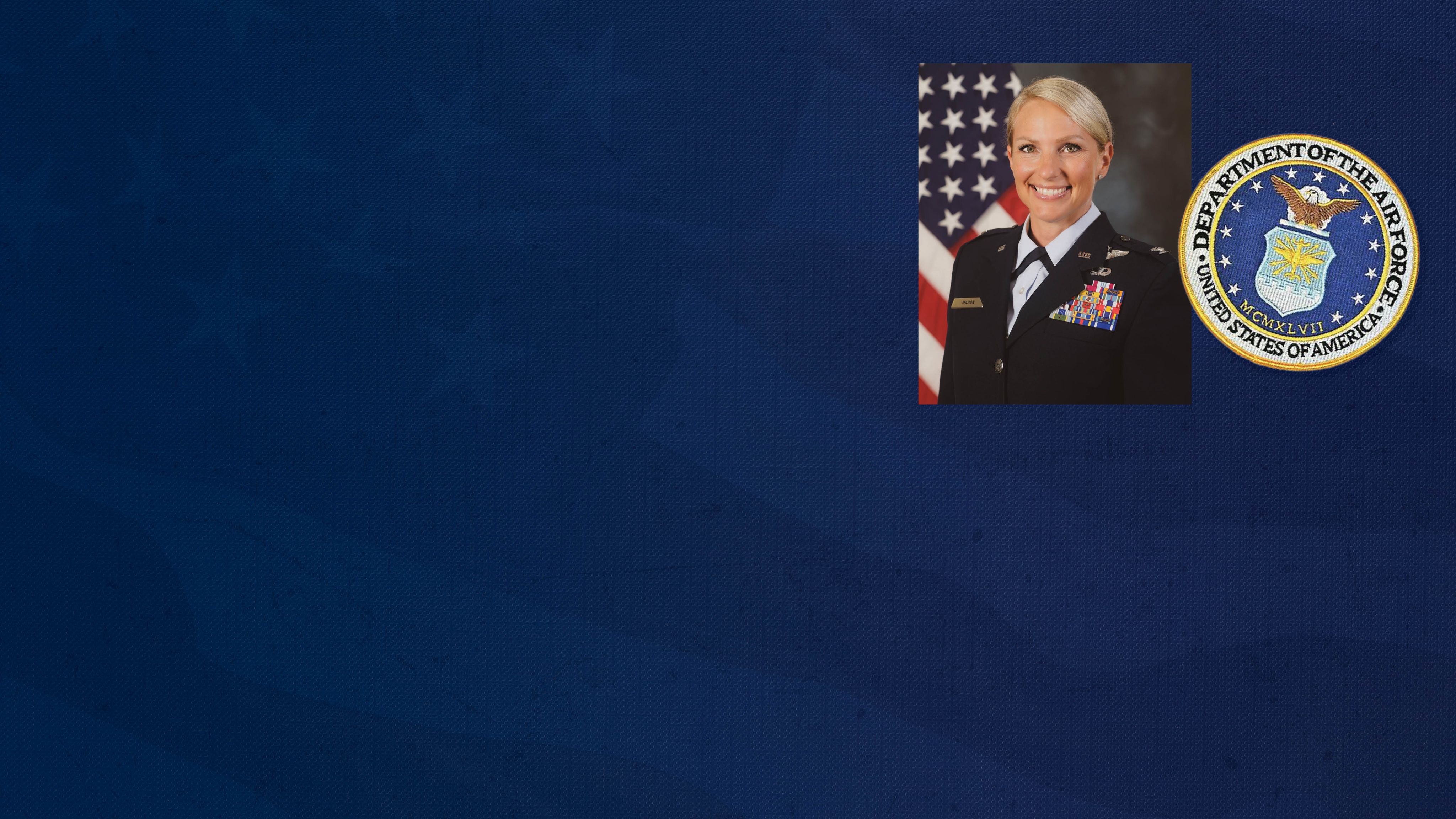
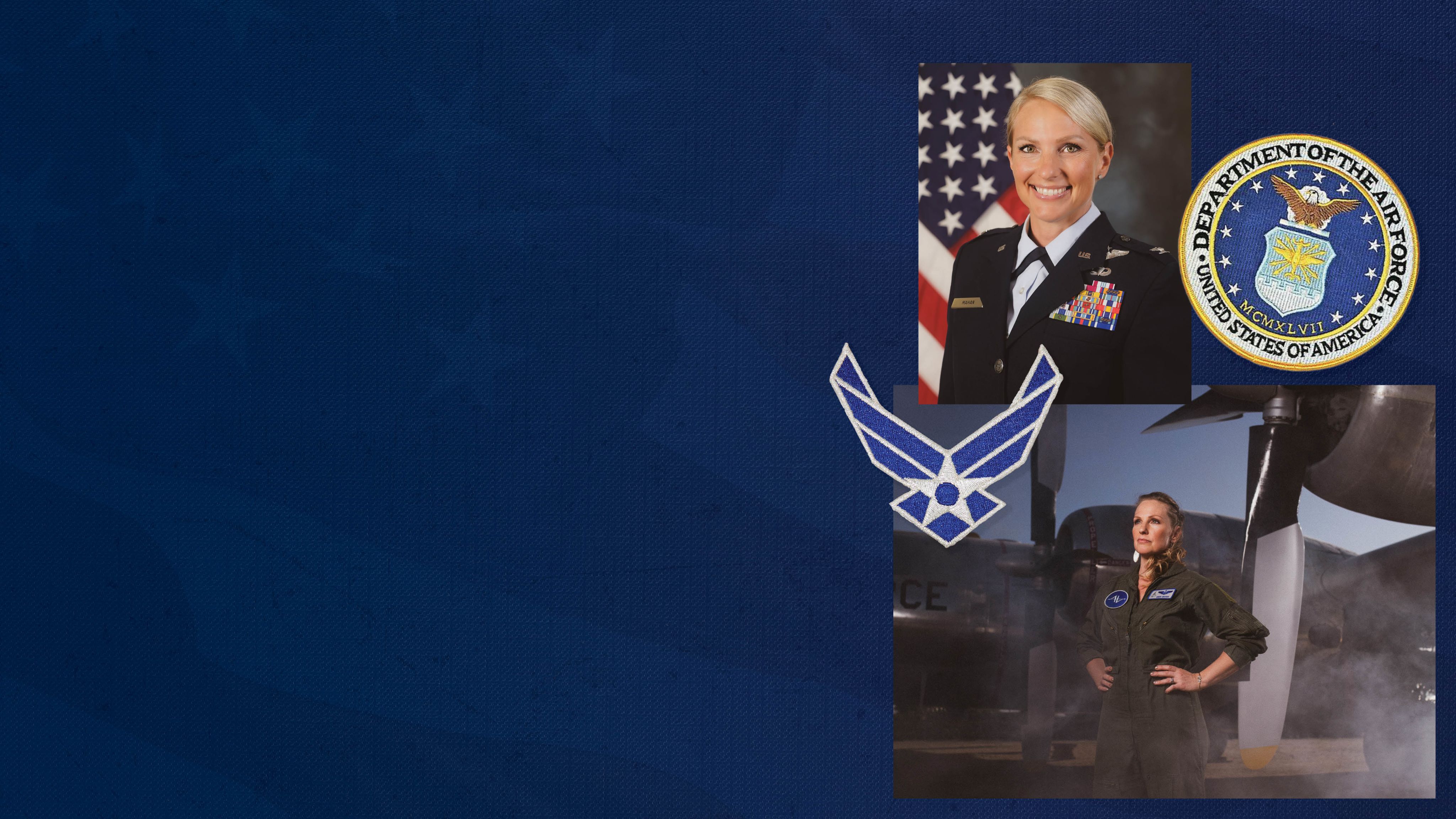
As a young girl, Vanessa (Price) Mahan (S’02) flew as a passenger in an airplane above the skies of Northwest Indiana with her father, an Army veteran and licensed pilot.
Bespectacled, Mahan knew early on that she would never be medically qualified to realize her dream of becoming a pilot in the U.S. Air Force.
But that didn’t mean she couldn’t take flight in her career.
“My goal was to be a weapon systems officer in the F-15E,” Mahan says, referring to the two-seater aircraft designed for Air Force combat operations.
Today, she serves as interim commander of the 701st Combat Operations Squadron (COS), leading air and space expertise—including combat operations, combat plans, intelligence, strategy, communications, and logistics—for the Korean Theater of Operations and beyond.
“To command is to serve. To lead the 701st COS and be entrusted with my airmen’s well-being and the success of our mission is the highest honor.”
But Mahan’s career, as she tells it, started far from the cockpit. Long before she tracked enemy aircraft, she tracked weather reports, flipping to the forecast in the morning paper as a kid.
“I think that’s what drew me in,” she says. “Flying depends so much on the weather.”
At Purdue, Mahan earned a bachelor of science degree in meteorology and was a distinguished graduate of Detachment 220, the university’s Air Force ROTC, when she commissioned as a second lieutenant.
Her next stop: joint strike undergraduate navigator training at Naval Air Station Pensacola, where she began training for a career in aviation.
In 2005, Mahan was formally designated a weapon systems officer, entrusted with understanding and managing the aircraft’s complex systems and weapons and working closely with the pilot to successfully complete missions in the F-15E Strike Eagle.
Shortly thereafter, Mahan deployed to Afghanistan with the 335th Expeditionary Fighter Squadron. Some missions were quiet. Others were anything but.
“People’s lives were literally in your hands, and there were times you couldn’t fly fast enough to get where you needed to be,” she says. “And other times, you fly missions and nothing happens.”
Mahan initially envisioned flying for the entirety of her career. But after 11 years of active duty, she transitioned to the Air Force Reserve, seeking a balance between service and family.
“Joining the Reserve was the best decision I made because I could be a mom and still continue to serve,” she says.
After pivoting completely to run a gym for the first portion of her time in the Reserve, Mahan has returned to a career in the Air Force now that her two children have grown.
Today, as a commander overseeing a squadron of 130 personnel at March Air Reserve Base in California, she leads with the same principles that have guided her all along—precision, adaptability, and knowing when to push and pull back.
“Serving in the military, as with any job, is about finding harmony between your work, your family, and yourself,” Mahan says. “You don’t want to over-G—which is essentially overstressing yourself or your family. But there are also times when work demands more, and you have to give more to work than your family. Effective communication and using your support systems are essential for success.”
More than two decades in, she’s still rising.
“I still feel that I have a job to do—and that I can have a positive impact on the Air Force,” Mahan says.
She hopes to spread knowledge about what it means to be in the Air Force, providing perspective for others contemplating their own career trajectories.
“Even if you’re never going to join yourself, maybe you’ll have a daughter or son who will say they are interested in flying,” Mahan says.
“Some see a challenge. I see a chance to rise. To lead, to serve, to soar above expectations—that’s the heart of an aviator and the soul of an airman. What will you rise to meet?”


Hear from Purdue women in the military—including Constance Solina, Rebecca Wyness, Karen Gibson, and Vanessa Mahan—at Purdue Women’s Conference 2025.
During “Forged in Service: Leading in the Military with Strength and Purpose,” Purdue alumnae will share their personal journeys, highlighting the resilience, adaptability, and strategic thinking that shaped their service to our country.
To learn more, visit purdueforlife.org/wc.


